My Cart
There is no product in your Cart
Kitchen Tiles
A well-crafted kitchen is the heart of every home. The tiles you pick play a massive role in shaping any kitchen’s appeal and feel. With the right kitchen tile designs, your culinary space can feel fresh, modern, and stylish. At Orientbell Tiles, you can explore many tile choices that can completely upgrade your cooking area. Made with advanced technology, these kitchen tiles offer longevity and beauty. Be it a sleek, modern look or a warm, rustic vibe, you can always find a tile design that suits your taste. Every tile option will make your kitchen both practical and visually appealing. So, explore our selection and craft delightful kitchen decor.
Enhance your cooking area with a contemporary kitchen tiles design that combines aesthetics and functionality. Whether you prefer a durable kitchen floor or a stylish kitchen wall, there are extensive choices of materials, designs, and finishes. Some of the popular kitchen tiles are ODG Juno Multi DK, SBG Mosaic Plain White, SHG Fruit Basket Zonte HL, SHG Wave Onyx HL, and OHG Tea Cup Golden HL. Find an ideal design for your kitchen that adds style, functionality, and ease of upkeep!
Explore Kitchen Wall and Backsplash Tiles
600x1200 Kitchen Wall Tiles
300x600 Kitchen Wall Tiles
300x450 Kitchen Wall Tiles
300x300 Kitchen Wall Tiles
600x600 Kitchen Wall Tiles
Explore Kitchen Floor Tiles
600x600 Kitchen Floor Tiles
600x1200 Kitchen Floor Tiles
300x300 Kitchen Floor Tiles
Explore Kitchen Countertop Tiles
800x2400 Kitchen Countertop Tiles
Kitchen Tile Sizes
Find kitchen tiles prices, catering to every budget. You can discover a range of tiles that strike a balance between quality, style, and durability, whether you're searching for more premium selections or more exclusive patterns. Explore different patterns and finishes to complement the design of your kitchen without sacrificing affordability.
|
Popular Kitchen Tiles Size |
Size in MM |
|
Large Kitchen Tiles |
800mm x 1600 mm 195mm x 1200 mm 600mm x 1200 mm |
|
Regular Kitchen Tiles |
600mm x 600 mm 300mm x 600 mm 145mm x 600 mm 400mm x 400mm 300mm x 450 mm |
|
Small Kitchen Tiles |
200mm x 300 mm 395mm x 395 mm 250mm x 375 mm |
Kitchen Tile Prices
Find kitchen tiles prices, catering to every budget. You can discover a range of tiles that strike a balance between quality, style, and durability, whether you're searching for more premium selections or more exclusive patterns. Explore different patterns and finishes to complement the design of your kitchen without sacrificing affordability.
|
Tile Type |
Minimum Price |
Maximum Price |
|
Kitchen Tiles |
Rs 34 per sq. feet |
Rs 356 per sq. feet |
Types of Kitchen Tiles Design at Orientbell
While going for a kitchen renovation, one must be very meticulous in choosing tiles that exude functionality and style. With Orientbell Tiles, one could get a wide array of kitchen tiles satisfying one's taste and preference. With an understanding of different types of tiles for kitchens, you can decide what would suit your design requirements.
1. Ceramic Kitchen Tiles:
These tiles will work similarly well for kitchen walls and backsplashes due to their versatile nature. Ceramic tiles demand minimal maintenance while being light on the pocket. Offered in numerous colours and style variations as well as in various finishes, ceramic kitchen tiles are easy to match any kitchen design. Some of the kitchen tiles design that our customers adore in the ceramic range are ODM Moroccan 3x3 EC Grey Multi (intricate patterns), ODM Arabic EC Multi (vibrant colours), and ODM Tabarka EC Red (rich hues). These tiles have high resistance to moisture and stains; they do very well in areas with splashes and spills. They can put up with the daily wear and tear of kitchen space because of their durability.
2. Vitrified Kitchen Tiles:
Vitrified tiles are known to feature great strength and work well as a favoured choice for kitchen floors. Their low porosity keeps maintaining resistance to spills and stains, making the maintenance an easy thing to do. Available in various kitchen tile designs to suit most decor, ranging from modern to rustic. Their robust nature suits high-traffic kitchen areas, ensuring your floor remains beautiful and intact for years. The most popular kitchen tile designs include ODM Mango Wood EC Brown (natural wood look), Tuscany Wood Brown (earthy tones), and River Creama (elegant neutrals).
Kitchen Design Ideas
Popular Kitchen Tile Colors at Orientbell
Orientbell Tiles features some of the best kitchen tiles in a range of colours that are popular among our customers:
- White Kitchen Tiles – White kitchen tiles give a very classic and timeless look that can elevate any kitchen. With their crisp and clean colour design, these tiles are perfect for creating a bright and airy space. Our tile options provide stunning shades of white that can suit various kitchen colour ideas.
- Grey Kitchen Tiles – Grey kitchen tiles bring a modern and sophisticated feel to your kitchen with their neutral and versatile kitchen colour shades that complement a wide range of kitchen decor. The shades offered range from light to dark and make room for flexibility in designs.
- Brown Kitchen Tiles – Kitchen tile designs in brown colour are appealing and will give your kitchen a warm atmosphere and feel. The touch of earthiness that the brown colour brings makes it one of the best-seller kitchen tiles to create a rustic or traditional kitchen look.
- Blue Kitchen Tiles – The patterns and hues offered by blue tiles could create a coastal feel in your kitchen. Coming in various shades of blue, these tiles go well with a lot of kitchen colour ideas while being soothing to the eyes.
- Beige Kitchen Tiles – Beige tiles are among the more versatile kitchen colour shades, bringing warmth and a relaxed feel to a kitchen. Beige tiles in the kitchen give off a soft and neutral look that is both elegant and understated.
- Black Kitchen Tiles – The sleek hues of black tiles create a statement in your kitchen and fit into various kitchen decor ideas while adding a touch of class.
- Cream Kitchen Tiles – Cream tiles bring a very soft and classic vibe to your kitchen ambience. These tiles come in shades ranging from light to deeper cream, offering flexible options for an elegant look.
- Ivory Kitchen Tiles – Ivory tiles are known to pull off a refined look. Tiles in this colour add subtle sophistication to your kitchen, aligning well with many kitchen themes.
- Green Kitchen Tiles – Green stands for freshness and the natural feel which gives a nature-inspired vibe to your space.
- Pink Kitchen Tiles – Pink kitchen tiles will help with creating a playful and charming look to your kitchen. The soft and lovely shades of pink tiles are ideal for creating a whimsical kitchen atmosphere, adding a unique and colourful touch.
- Yellow Kitchen Tiles – The sunny and vibrant colour design of yellow tiles is perfect for creating a lively kitchen atmosphere. Yellow, with its variant of kitchen colour shades brings a cheerful look while adding warmth and energy to your space.
- Purple Kitchen Tiles – When purple kitchen tiles from Orientbell Tiles are used, it gives a magnificent appearance to the kitchen. These tiles rank among the finest kitchen tile design ideas to provide your interior with a more elegant and simultaneously inspiring space.
- Red Kitchen Tiles – To generate a joyful and spirited atmosphere in your culinary area, red kitchen tiles will make a great choice. They are very convenient for setting up a focal point in the kitchen area.
- Silver Kitchen Tiles – Silver tiles give the kitchen space a sleek, modern appearance that will blend very well with a contemporary design.
- Multi-Coloured Kitchen Tiles – Multi-coloured kitchen tiles convey an impactful yet eclectic look in a kitchen. The colourful and dynamic design makes them among the best-seller kitchen tiles for creating a unique kitchen ambience.
How To Choose Kitchen Tiles
Choosing the right kitchen tiles is important to balance the two most key elements: style and functionality in a culinary space. Here's a checklist you must consider:
- Budget Considerations: Establish a realistic budget and seek good quality options within it. Investing in high-quality kitchen tiles will ensure that they sustain the rigours of daily use and significantly improve the overall appeal of your kitchen.
- Size and Layout: Choose tile sizes and layouts that complement the dimensions of your kitchen. For example, larger tiles can make a small kitchen feel larger in scale. On the other hand, small kitchen tiles in designs like herringbone or subway tiles add visual interest and texture to the kitchen.
- Design and Style: Consider what overall look you are going to create. From colour combination tiles to add cosiness to traditional kitchen tiles that give out old comfort and familiarity, pick those which will complement the feel of your theme in the kitchen. Pay attention to the quality check in terms of uniformity of colour and finish to ascertain a cohesive and impressive look.
- Functionality and Durability: Focus on functionality by choosing kitchen tiles which are going to be easier to clean and maintain. Make sure to go for the ones that are resistant to stains and scratches, more so in areas with high traffic. Go for good quality tiles for longevity while balancing your budget and the need for durable and attractive tiles.
- Variety of Materials: Choose the right material by considering the area, usage and decor of your kitchen. Featuring durability, vitrified and ceramic kitchen tiles can last long without heavy maintenance. Ceramic tiles show versatility in their designs and work well in walls and as backsplashes while vitrified tiles are apt for floors that are prone to spills and moisture due to their low porosity.
FAQs About Kitchen Tiles
1. How to get the correct style and size of kitchen tiles?
-
The right style and size of your kitchen tiles will be chosen considering the dimensions of your kitchen area and your taste. Larger tiles will give an illusion of bigger space in the small kitchen whereas the smaller ones add textures and visual interest. Select styles that compliment the theme and layout of the kitchen to enhance functionalities without compromising on aesthetic appeal.
-
2. Which tile is best for a kitchen?
-
The recommended type of tile to use in the kitchen would be ceramic and vitrified tiles since they are durable. As for the walls, you can opt for the glossy finish since they are easy to clean and for the floor tiles, it is better to choose matte, more so in wet areas, since they provide a non-slip surface. Choose tiles based on your kitchen usage, style, and maintenance expectations.
-
3. How to select kitchen tiles?
-
First of all, decide where you want to get the tiles installed it is for the walls, floors or backsplash! Next, choose the right size and colour according to your space. If you are looking for kitchen floor tiles, you can opt for vitrified tiles, while ceramic tiles are a good-to-go option for kitchen wall tiles.
-
4. What are the trending kitchen tiles at Orientbell Tiles?
-
The trending kitchen tiles at Orientbell Tiles are ODG Juno Multi DK, SBG Mosaic Plain White, SHG Fruit Basket Zonte HL, SHG Wave Onyx HL and OHG Tea Cup Golden HL.
-
5. Is tiles in the kitchen a good idea?
-
Yes, tiles in the kitchen are always a good idea. First of all, tiles enhance the style of the kitchen space and give it a mesmerising look. Secondly, kitchen wall tiles and floor tiles are easy to clean and reduce the stress of rubbing the floors and walls in order to remove hard stains. You can simply use a wet cloth or mop to clean these tiles, and you are good to go! And most importantly, tiles have low porosity and absorb minimal moisture. This means all your spills and splashes will not affect the tile adversely.
-
6. Where can I buy kitchen tiles?
- You can buy kitchen tiles from Orientbell Tiles stores. Also, there is an option to buy tiles online from the official website of Orientbell Tiles. You just need to check out the type of tile you want to buy and then add it to the cart. You can even ask for a sample piece and it will be delivered at your doorstep at a small cost.
7. How to clean kitchen tiles?
- To clean kitchen tiles, you can simply use a wet cloth or mop to remove accumulated stains or marks. Also, you can use a mixture of vinegar and water for stubborn stains. Apply the mix directly over the stain, rub it well and then wash or wipe off the residue
8. Which tile is best for the kitchen countertop?
- Ceramic tiles are best for kitchen countertops as they are durable and long-lasting. Also, these tiles can be cleaned or mopped easily in case there are food stains on the tile surface. They are less water-absorbent and have a less porous body. The Granalt range of vitrified tiles also makes for great countertops and can provide you with a stunning granite-like look.
9. What are backsplash tile ideas for the kitchen?
- You can go for highlighter tiles for your kitchen backsplash. There is a wide range of highlighter tiles available in different designs, colours and textures. You can choose from various designs such as wooden, stone, glass, mosaic and so on. These tiles can be clubbed together with plain ceramic tiles to create an appealing concept.
10. Is matte or glossy tile better for the kitchen?
- Matte tiles can be perfect for establishing a homely and informal ambience because they have a more subdued appearance and offer a more natural, textured effect. They are a safer choice for kitchen floors since they have the added benefit of being less slippery than glossy tiles. Glossy tiles, on the other hand, have a more polished and shiny appearance, which can help brighten the room and provide a contemporary touch. They are also less difficult to clean than matte tiles since they do not readily absorb dirt and filth.
- a. Which colour tile is best?
There is no objectively "best" colour tile as personal preferences and design aesthetics vary greatly. The best colour tile depends on various factors, such as the desired mood or atmosphere of the space, the colour scheme of the surrounding area, and the intended use of the space. Although, the choice of tile colour should be based on the individual's personal preference and the overall design vision for the space.
- b. Is polished tile too slippery for the kitchen?
Polished tiles are not usually not considered ideal for kitchen flooring, where spills and water are frequent since they can be slippery, especially if wet. It's crucial to select tiles with non-slip properties or to go with a matte or textured finish instead. On a glossy tile floor, using runners or area rugs can also aid in increasing traction and lower the risk of slipping.
- c. Which lasts longer, glossy or matte?
Tiles can be strong and long-lasting in both glossy and matte finishes, but based solely on the finish, you cannot determine longevity. The quality of the material used to make the tile, its thickness, and the amount of foot traffic and wear and tear it will endure all affect how long the tile will last. In order to ensure the longevity of your tiles, it's crucial to buy high-quality tiles regardless of their finish and to adhere to the recommended maintenance and care procedures.
- d. Which tile is better for the kitchen, porcelain or ceramic?
For kitchen floors, porcelain tile is typically regarded as being preferable due to its longevity and stain- and water-resistance. Porcelain tiles are denser and less porous than ceramic tiles, making them more sturdy and less likely to chip or crack. Porcelain tiles can withstand significant foot traffic in high-traffic areas like kitchens with little deterioration. Ceramic tiles are more appropriate for kitchen areas with minimal usage, although they have some advantages, including price and availability in various finishes and colours.
- e. Is it hard to keep matte tiles clean?
Yes, it is relatively easy to keep matte tiles clean! They do not tend to show dirt and stains more prominently. Matte tiles have a textured surface that can help to hide minor imperfections. Additionally, matte tiles are often made with materials that are more resistant to stains and are easier to clean. With regular maintenance and gentle cleaning, these tiles can maintain their beautiful appearance for years to come.
- f. What colour kitchen floor shows the least dirt?
Typically, choosing light-coloured kitchen floors, such as light grey or light brown, is advised to conceal filth and dust. Additionally, grime, dust, and footprints are less likely to be visible on lighter-coloured satin (low-sheen) finishes. It's crucial to remember that choosing a colour for flooring that hides dirt can also be arbitrary and may depend on personal preferences and the real setting where the flooring will be installed.
- g. What is easier to clean, matte or gloss tiles?
Glossy tiles are easier to clean because of their smooth, shining surface, which repels dirt and stains. Conversely, matte tiles are more porous and textured, which can make them more challenging to clean if dirt or stains get stuck on the surface. Gloss tiles, on the other hand, are more likely to show stains than matte surfaces, so it's crucial to keep that in mind.
11. What is the most durable tile for a kitchen?
- Porcelain tile is considered one of the most durable options for a kitchen floor. Their water and stain resistance ability, and ease of cleaning make them well-liked options for high-traffic areas like kitchens. Other durable options include ceramic tile, natural stone, and cement tiles. However, the durability of each tile can depend on factors such as the thickness, hardness, and finish of the tile.
- a. Which tile size is best for kitchen flooring?
Depending on the homeowner's preferences and the design of the kitchen, the size of the tiles used for kitchen flooring may vary. However, 12-inch tiles are the typical size considered by major users, and their size is ideal for customisation. In order to make a space appear bigger and have fewer grout lines, larger tiles, such as 12x24 inches or even larger, can also be employed.
- b. What is the best flooring to lay in a kitchen?
The best flooring to lay in a kitchen is typically one that is durable, water-resistant, and easy to clean. Some popular options include ceramic or porcelain tile, vinyl or linoleum, and hardwood or engineered wood. In the end, the best choice depends on your preferences, budget, and lifestyle factors.
- c. Which tiles last the longest?
The longest tiles are typically made from durable materials such as porcelain, ceramic, and natural stone such as granite or slate. Proper installation and maintenance can also contribute to the longevity of the tiles.
12. Which type of tiles is cheaper?
- Ceramic tiles are typically less expensive than other tiles. However, the price will vary depending on the type of tiles used, the size of the area, and where you live. Remember that while ceramic tiles could be less expensive initially, they might not last as long and need to be replaced more frequently than porcelain tiles, which might cost more in the long run.
- a. Which tile brand is best?
It's difficult to say which tile brand is the best as it largely depends on personal preferences, budget, and the project's specific needs. However, Orientbell Tiles is a well-known brand in the tile industry and has been in business for over 40 years. They offer a wide range of tiles in various materials, sizes, and designs to suit different needs and budgets. Additionally, they have a good reputation for quality and customer service.
- b. Which tile quality is best?
You can find your best suitable tile based on the particular application and project needs. The quality of the tile can also be influenced by elements like the manufacturer, the material, and the particular installation and maintenance techniques utilised. Different types of tiles have varied strengths and weaknesses. For instance, ceramic tiles are frequently chosen for their affordability and versatility, whilst porcelain tiles are renowned for their toughness and lifespan.
- c. How can you tell good quality tiles?
The quality of tiles can be assessed in a number of ways. To begin with, make sure the tiles are straight and have a consistent thickness. Second, look for any fractures, chipping, or warping on the surface. Third, check for any flaws or variations in the glaze or colour. Fourth, consider the tiles' weight; heavier tiles are typically more resilient. The water absorption rate should also be taken into account; high-quality tiles have a low water absorption rate.
- d. What is the cost of a tile?
In India the cost of a tile can vary significantly based on the size, design, quality, and the place it is used for. In general, ceramic tiles can cost anywhere from 20 to 150 rupees per square foot, while vitrified tiles can cost between 30 and 200 rupees per square foot. Porcelain tiles, which are a higher-end option, can cost anywhere from 50 to 500 rupees per square foot. Prices can also vary depending on the brand and retailer.
- e. What's better, ceramic or porcelain tile?
There is no clear winner when it comes to ceramic or porcelain tiles because each has unique benefits and drawbacks of its own. Porcelain tiles, on the other hand, are typically thought to be more robust and less porous than ceramic tiles, making them more resistant to moisture and severe usage. Additionally, porcelain tiles may provide more style variety and design freedom. Porcelain tiles, however, are often more expensive than ceramic tiles and require more advanced installation techniques and tools.
13. Which colour of floor tiles is best for the kitchen?
- Neutral colours like beige, grey, or white are popular options since they can complement a number of kitchen styles and are simple to match with other design components. Additionally, while lighter colours can make the kitchen appear brighter and larger, darker colours can help to conceal stains and filth.
- a. What colour flooring is best for a small kitchen?
A small kitchen may benefit from light-coloured floorings, such as white or grey, since it can help the room feel more airy and large. Larger floor tiles are also an excellent alternative because they give the appearance of more space. Textured materials like slate or natural stone can also offer a non-slip surface in kitchen areas.
- b. What is the best colour for kitchen floor tiles?
The room's specific design objectives and aesthetic preferences will determine the ideal colour for kitchen floor tiles. White or light grey floor tiles may open up a small kitchen and give it a feeling of space. Darker colours can offer drama and refinement, while neutral hues like tan or beige can add warmth and cosiness to the room.
14. What tile size is the best for the kitchen floor?
- The best tile size for a kitchen floor will depend on the room's dimensions, the kitchen's design, and individual choices. 12x12-inch, 18x18-inch, and even larger dimensions like 24x24-inch or 12x24-inch tiles are some popular sizes for kitchen floors. Smaller tiles can be utilised to create detailed patterns and motifs, while larger tiles can help a tiny kitchen feel more expansive.
- a. What tiles make a small kitchen look bigger?
A small kitchen can appear larger by utilising larger floor tiles as well as by choosing light-coloured tiles, which reflect more light and give the impression of more space. Vertically arranged rectangular tiles can also provide the sense of taller ceilings and greater space. Further, consider using the same wall and floor tiles to promote continuity and openness in a small kitchen.
- b. What type of tile goes on a kitchen floor?
Porcelain or ceramic tiles are commonly used for kitchen floors because they are durable, easy to clean, and come in a variety of styles and colours to match any kitchen decor. Other options include natural stone tiles, such as granite or marble, which can enhance the overall aura of your space. Eventually, the type of tile you choose will depend on your style, budget, and the foot traffic your kitchen receives.
- c. What kind of floors is best in the kitchen?
Various flooring options are common for kitchens, including hardwood, tile, vinyl, and natural stone. Amongst tile is a long-lasting and better alternative that is available in a wide range of hues and designs, while hardwood flooring can give the room a cosy, natural feel. Vinyl flooring is an inexpensive, weatherproof choice that feels good underfoot and requires no upkeep. Natural stone tiles made of granite or limestone can also be a classy and long-lasting option for kitchen flooring.
- d. Do larger tiles make a small kitchen look bigger?
Yes, utilising larger tiles can give the appearance of a wider, more open space in a tiny kitchen since there will be fewer grout lines. Larger-sized tiles can also give the impression of continuity and flow, which can help the kitchen look larger. To be clear, the look and perceived size of the kitchen will also be significantly influenced by the colour and texture of the tiles.
- e. Are big tiles better than small tiles?
It varies on personal preference and the particular use case. Big tiles can make a space look bigger and are easier to install, while small tiles offer more design flexibility and better slip resistance.
- f. Is a thicker or thinner tile better?
Thicker tiles are generally more durable and can handle heavier traffic and wear, making them ideal for high-traffic areas like commercial buildings or outdoor spaces. Thinner tiles are lighter and easier to install, making them suitable for walls, backsplashes, or areas with less foot traffic. However, thinner tiles may not be as durable and may be more prone to cracking or chipping.
15. What size tiles make a kitchen look bigger?
- Using larger tiles in a kitchen can create the illusion of a bigger space as there are fewer grout lines, and the tiles create a sense of continuity. Opting for tiles at least 12x12 inches or larger can help make a kitchen look bigger. Additionally, using light-coloured tiles can also contribute to a sense of openness and brightness in the space.
- a. What is the most popular colour for a kitchen?
For kitchen spaces, usually light colours are preferred by homeowners. Light colours reflect the most amount of natural light and keeps the kitchen look more spacious. You can try out light colours like beige, white, cream, etc to enlighten your space.
- b. How can I make my kitchen look expensive?
Consider upgrading your lighting fixtures to add a touch of elegance, modernity, and opulence. Then, invest in high-quality countertops made of materials such as granite, quartz, or marble. Also, replace your cabinet hardware with sleek, stylish options. Add a backsplash made of luxurious tiles such as glass or stone. Finally, keep your kitchen clean, organized, and clutter-free to showcase its beauty and elegance.
- c. What colours make kitchens 100k bigger?
There are certain colour schemes that can help create a luxurious and expensive look. Neutral colour palettes, such as whites, grays, and beige, can give a kitchen a timeless and elegant feel. Adding pops of bold color, such as navy blue or emerald green, can also create a sophisticated and high-end look. Also, using high-quality materials, such as natural stone, metal accents, or high-gloss finishes, can add to the expensive feel of the space
- d. What tiles to use in a small kitchen?
In a small kitchen, it's best to use light-coloured and reflective tiles to create an illusion of more space. Large format tiles can also help to visually enlarge the area. Ceramic and porcelain tiles are durable and easy to clean, while glass tiles can add a beautiful and modern touch. Subway tiles, mosaic tiles, and hexagonal tiles are popular options that can add texture and interest to the space without overwhelming it.
- e. What flooring makes a small kitchen look bigger?
Light-coloured and reflective flooring can make a small kitchen look bigger. Opt for materials such as light-coloured hardwood, laminate, or vinyl flooring. Avoid dark colours and patterns that can make the space appear smaller and busier. Large-format tiles or planks can also create the illusion of more space, as there are fewer grout lines to break up the flooring.
- f. Is it cheaper to use large tiles?
Generally speaking, it is less expensive to utilise larger tiles for flooring because installation manpower costs are lower per square foot as tile size increases. Additionally, larger tiles have less grout lines to clean and might give the appearance of a larger room. It is important to keep in mind that larger tiles can need a thicker flooring and might cost more to carry and handle.
- g. What Colour tiles make a room look bigger?
Light-coloured tiles, such as white, beige, and pastel shades, can make a room look bigger and brighter by reflecting more light and creating a sense of spaciousness.
16. Which tiles are used on the kitchen floor?
- The kitchen floor can be tiled with a variety of materials, such as ceramic, porcelain, slate, marble, granite and travertine. The choice of tile will depend on elements like pricing, cost-effectiveness, and durability. Due to their longevity, water and stain resistance, and ease of cleaning, ceramic and porcelain are particularly well-liked options for kitchen floors.
- a.What is the best flooring for the kitchen?
Porcelain or ceramic kitchen tiles are generally considered the best options for kitchen flooring due to their durability, resistance to moisture, and ease of maintenance. They come in a wide variety of colours, patterns, and textures, making them a versatile choice for any kitchen style. Additionally, porcelain and ceramic tiles are relatively affordable and can last for many years with proper care.
- b. Which colour tile is good for the kitchen?
Neutral colours like white, beige, grey, and light shades of blue or green are good choices for kitchen tiles as they create a clean, fresh look and pair well with a variety of other colours and styles. However, the choice of tile colour ultimately depends on personal preference and the overall design scheme of the kitchen.
- c. Which tile is best for the kitchen slab?
Porcelain tiles and natural stone are excellent choices for kitchen slabs. Popular natural stone selections include granite, travertine, slate, and marble, while porcelain comes in a variety of hues and designs.
- d. Which colour tiles are best for the floor?
Given that they go well with a range of kitchen layouts and colour schemes, neutral colours like beige, grey, and white are popular choices for kitchen floors. Additionally, lighter colours can serve to make the space appear brighter and more open, while darker colours can conceal stains and grime better than lighter colours.
17. Is it better to have porcelain or ceramic tile?
- Ceramic and porcelain tiles each have benefits and drawbacks. Porcelain tiles are ideal for use outdoors and in high-traffic areas because they are denser and more durable. Ceramic tiles are more cost effective and have a greater selection of colours and designs. The decision ultimately comes down to your own requirements and tastes.
- a. Do porcelain tiles chip easily?
Porcelain tiles are incredibly strong and resistant to chipping as they are made with a hard, dense substance that is fired at extremely high temperatures. Nevertheless, they could break or chip if they witness harsh impacts or poor installation methods. When installing porcelain tiles, handling them gently and using the right equipment and methods to avoid damage is crucial. Also, choosing premium porcelain tiles from a reliable supplier can help guarantee their durability and damage resistance.
- b. Is porcelain tile slippery?
Porcelain tiles can vary in their slipperiness depending on their surface finish and texture. Some porcelain tiles have a high coefficient of friction and provide good traction, while others may be more slippery, especially when wet. It is important to choose the appropriate porcelain tile for the intended use and to ensure that it meets the required safety standards for slip resistance.
- c. Is porcelain tile a good choice for the kitchen?
In the kitchen, a porcelain tile is a wonderful option because it is moisture-resistant, incredibly durable, and simple to maintain. Due to its resilience to wear and stains and capacity to tolerate high foot traffic, it is a well-liked flooring option for kitchens. Porcelain tile is a flexible option for kitchen flooring because it comes in a huge selection of patterns and hues. It is also appropriate for usage in other damp locations, including patios and laundry rooms.
- d. Which is cheaper, porcelain or ceramic tile?
Due to less expensive raw materials and a simpler manufacturing process, ceramic tile is typically less expensive than porcelain, though costs can vary based on aspects including quality and design.
- e. How long might porcelain tile last?
When installed and maintained correctly, porcelain tile can last for decades, often over 50 years or more. Porcelain tile's lifespan might vary depending on factors including usage, foot traffic, and adequate maintenance. However, porcelain tiles are a resilient and long-lasting flooring option that can offer exceptional value over the years with careful installation and upkeep.
18. Which are the best quality tiles?
- The market offers a variety of high-quality tile options, including slate, granite, marble, ceramic, and porcelain. Cost, durability, and aesthetics will determine a project's need for the highest quality tile. Natural stone tiles like granite and marble offer a distinctive and high-end aesthetic but may require more upkeep. Porcelain and ceramic tiles are frequently preferred for their longevity and ease of maintenance.
- a. Which tiles are long-lasting?
Porcelain tiles, ceramic tiles, and natural stone tiles (such granite, marble, and limestone) are all regarded as being extremely durable and long-lasting tile options.
- b. Which colour of tile is best?
The ideal tile colour will depend on the particular space and the overall style of the design. But safe alternatives that work well with a range of decor types are neutral colours like white, beige, cream, and soft pastel colours. It's also a good idea to consider things like the amount of natural light in the space, the volume of foot traffic, and how simple it will be to clean and maintain.
- c. What kind of tile lasts the longest?
Porcelain and Ceramic tiles are considered to be durable and long-lasting options for flooring and walls. They are reasonably resistant to scratches, stains, and water, and can maintain their appearance for many years with proper care.
- d. What Thickness of tile is best?
The best thickness of tile depends on several factors, such as the intended use, the size of the tile, and the installation location. Generally, thicker tiles are more durable and can withstand heavier traffic and weight. For flooring, tiles with a thickness of at least 8-10mm are recommended, while wall tiles can be thinner at around 4-6mm. However, it's always best to consult with a professional or tile manufacturer for specific recommendations based on your needs.
- e. Which tiles are the toughest?
Due to their greater hardness, density, toughness, porcelain tiles are typically regarded as the toughest form of tile. Porcelain tiles are also resistant to dampness, stains, and scratches, making them perfect for outdoor use and high-traffic areas. While porcelain is frequently regarded as the strongest and most lasting option for tile, other materials including natural stone, granite, and cement are also durable.
- f. Which tiles are good, matte or glossy?
Matte tiles are less slippery, tend to have a more understated and refined appearance, and are better at concealing stains and scratches. Additionally, they often need less upkeep than glossy tiles. While Glossy tiles provide a shiny, reflective surface that can give the impression that a space is larger and brighter. Although they are simple to clean but could be more slippery and need more frequent upkeep to preserve their gloss. In the end, the decision between matte and glossy tiles comes down to personal preference, space-specific requirements, and design considerations.
- g. Which tiles are easier to clean?
Vinyl, glazed or polished porcelain, ceramic, and glass tile are some of the tile varieties that are regarded as being easier to maintain. Since none of these tiles are particularly permeable, they are less likely to collect dirt and stains. Additionally, they are simple to clean with solutions of vinegar and water or common household cleansers.
- h. What is better porcelain or ceramic tile?
Porcelain tile is generally considered to be better than ceramic tile because it is denser, harder, and more resistant to moisture and staining. Porcelain tile is also more durable and can be used in high-traffic areas, whereas ceramic tile is better suited for low to moderate traffic areas. However, porcelain tile is typically more expensive than ceramic tile.
19. Which tiles are the cheapest?
- The cheapest tiles can vary depending on various factors, such as the material, size, and manufacturer. Generally, ceramic and porcelain tiles are more affordable than natural stone or glass tiles. However, it's always best to compare prices and quality across different brands and types to find the most cost-effective option for your specific needs.
- a. Which grade tiles are best?
The best grade of tiles depends on the specific use case and personal preference. Generally, Grade 1 tiles are considered the highest quality, most durable, and most uniform in appearance, making them a popular choice for high-traffic areas such as hallways and kitchens. However, Grade 2 and Grade 3 tiles are also suitable for residential use and may offer more affordable options with slight variations in color and texture.
- b. Which tiles are the most durable?
Due to their durability, density, and hardness, porcelain tiles are typically regarded as the most durable form of tile. They are perfect for use outside and in high-traffic areas because of their exceptional resistance to moisture, stains, and scratches. Natural stone tiles like granite and ceramic tiles are two additional sorts of tiles that are renowned for their durability.
- c. Are Bigger tiles cheaper?
Due to the higher cost of production and transportation, larger tiles are typically more expensive than smaller tiles. However, because they cover more space per tile and require fewer grout lines, larger tiles can be more economical to install. Therefore, a number of variables, such as the type of tile, the method of installation, and the general layout of the area, affect how cost-effective larger tiles are.
- d. How much should I budget for the tile?
The price of tile varies based on the kind of tile, how large the area needs to be tiled, how difficult the installation is, and where you reside. The typical cost of tile materials and installation ranges from Rs 80 to Rs 1600 per square foot. It's recommended to consult with a local tile installer to get an idea of the costs involved in order to receive a more precise quote for your particular project.
20. What tiles are in trend?
- The use of natural materials like onyx, granite, limestone, and marble, bold and bright colours like mustard yellow and teal, oversized tiles, biophilic designs, spa-like styling, retro concrete inspirations, handmade-look for walls, marble-look tiles, Moroccan and Terrazzo designs, triangular green tiles, and glossy ceramic tiles in warm colours are among the current tile trends. Also, tiles with a matte finish are popular. However, location and personal preferences may also have an impact on tile trends.
- a. Are tiles still fashionable in the kitchen?
Yes, Tiles are still in trend, especially ceramic and porcelain ones, are regarded as classic and never go out of style. Additionally, they work well both inside and outside. There are several backsplash and tile ideas for the kitchen that can revitalise the room and make it more appealing and useful. Tiles continue to be a popular alternative for kitchen design despite fashion fads coming and going because of their durability, adaptability, and low maintenance requirements.
- b. Are bigger or smaller tiles better?
Due to a greater amount of grout lines in smaller tiles, a space may appear busier and more textured, whereas bigger tiles may give the impression that the area is more streamlined and vast. Larger tiles can provide the appearance of more space in a compact space by minimising the amount of visible grout lines. Smaller tiles, on the other hand, may be more adaptable and enable more complex designs.
- c. Which size of tiles is best?
Smaller tiles can make a space look busy and textured due to the greater number of grout lines, whereas larger tiles, such as those measuring 12 to 18 inches or more, can make a room feel larger. Larger tiles, measuring at least 4x4 inches, can be used for shower walls that are moderately sized or big. Larger tiles, measuring 24x24 inches to 48x48 inches or more, can be placed on floors to provide the impression of space.
- d. What is the most popular tile size?
The most popular tile size varies depending on the specific use case and design preferences, but some of the most common sizes for interior and exterior tiles are 12x12 inches, 18x18 inches, and 24x24 inches.
21. Which is the most durable type of tile?
- Porcelain tiles are regarded as the tile type with the greatest level of durability. The dense clay used to create porcelain tiles is fired at extremely high temperatures to create a hard, long-lasting material impervious to cracks and damage. Porcelain tiles are a great option for usage in high moisture or high foot traffic areas like kitchens, baths, and entryways because of their exceptional water resistance.
- a. Which tile is scratch resistant?
Both ceramic and porcelain tiles are typically regarded as sturdy and quite scratch-resistant options. However, the hardness and scratch resistance of a tile can be impacted by elements such as glaze, surface quality, and the tile's rating or classification system such as the Porcelain Enamel Institute (PEI) grading. It's vital to examine the specific type and quality of the tile being used, as well as considerations like foot traffic and wear and tear, when picking a scratch-resistant tile for a particular application.
- b. What type of tile is easiest to clean and maintain?
Ceramic and porcelain tiles are the easiest type of tile to clean due to their non-porous surface which repels stains and dirt. They can be effortlessly wiped clean using a damp cloth or mop, and they are also resistant to most household cleaners.
- c. What type of tile stays coolest?
Porcelain and ceramic tiles tend to stay cooler than other types of tiles because they are non-porous and have a lower thermal conductivity. They are also less likely to absorb and retain heat, which can help keep your floors cooler.
- d. Which is better ceramic or porcelain tiles?
It depends on your needs and preferences. Ceramic tiles are cheaper and easier to install but less durable. Porcelain tiles are denser, more durable, and better for high-traffic areas or areas exposed to water or humidity but are more expensive and difficult to install.
- e. Which tile is not slippery?
It is suggested that you choose tiles that are designated as slip-resistant or have high coefficients of friction to reduce the slipperiness of tiles. This can include choices like textured ceramic or porcelain tiles, matte finish tiles, or tiles with rougher surfaces that offer extra traction on the ground.
22. What Kitchen Tiles are in for 2025?
- Several types of tiles are in trend for kitchens in 2025, including classic tiles such as ceramic and porcelain, natural stones such as onyx, granite, limestone, and marble, and backsplashes made of stone slabs. Other popular options include bold colours, oversized tiles, and biophilic designs. Layering the kitchen floor with rugs is also becoming more common. In terms of specific designs, patterns on kitchen floor tiles are popular, as are subway tiles, mosaic tiles, and buff sandstone tiles.
- a. What colour is on trend for kitchens in 2025?
According to various sources, including design professionals and trend forecasts, green is a popular colour in kitchens in 2025. For kitchen cabinets, walls, and accents, hues of green in the range of sage green to deep olive and forest green are considered as being popular selections. Warm white, gentle pink, soft yellow, earthy terracotta, melancholy blue, midnight tones, and darker wood stains are some other popular kitchen colour options.
- b. What is the most popular kitchen style for 2025?
Incorporating natural components, using darker colours and finishes, creating multi-functional spaces, mixing materials and textures, and incorporating smart technology and sustainable design aspects. These are some of the design trends predicted to be popular for kitchens in 2025. Shades of navy and white, coral and white, or light blue and grey are common colour pairings.
- c. Are white kitchens out for 2025?
Since they offer a timeless and modern style, white kitchens have been a popular choice for many years and continue to appeal to designers and homeowners. White kitchens will probably remain fashionable in 2025, but other design fads could also appear.
- d. What kitchen trends are going out of style?
All-white kitchens, open shelving, farmhouse sinks, and statement backsplashes are a few kitchen trends that are out of fashion. Darker colour schemes, hidden storage, and more organic, natural materials like wood and stone are becoming more fashionable. Minimalist and practical designs are also on the rise.
- e. What is the new trend of flooring in 2025?
Wooden planks, large-format tiles, natural stone tiles, porcelain tiles with a tumbled feel, and neutral shades like honey, cream, and white are some of the flooring trends for 2025. Rustic and organic textures, bleached or whitewashed floors, and smoky wood floor tones are some of the attractive options. Additionally, as consumers continue to spend money on high-quality, long-lasting floor coverings, textile-backed vinyls are anticipated to grow in popularity.
- f. Are kitchen tiles outdated?
While some homeowners may prefer a more contemporary and sleek appearance with hardwood or vinyl flooring, others may prefer a more classic look and feel with tile flooring and backsplashes. Tile is still a common choice for kitchens in general, and there are a variety of colour, texture, and pattern possibilities to match various tastes and aesthetics. In the end, the selection is based on the preference of the individual as well as practical considerations like durability and upkeep requirements.
- g. What is the most popular tile for the kitchen floor?
Ceramic and Porcelain tiles are the most popular flooring option for kitchen floors due to their versatility, durability, easy maintenance, and affordability. They comes in various colours, patterns, and textures, and can withstand moisture, stains, and scratches.
- h. What colour tile is in style 2025?
Popular tile colour schemes include jewel-toned hues including teal, mustard, emerald, and aquamarine. Some homeowners are also choosing large-format tiles, organic materials like stone, and geometric forms like triangles.
- i. What is the popular floor colour for 2025?
Pale pine, bleached oak, deep espresso, mid-toned brown, grey tones, whitewashes and tones, honey and light brown tones, walnut and dark brown tones, and dark charcoal or black stains are some of the trendy floor colours and designs for 2025.
- j. Is grey still popular in 2025?
Yes, grey is still a popular colour in 2025. In recent years, grey tiles have become a popular choice for both residential and commercial applications due to their versatility and timeless aesthetic. You can find grey tiles ranging from light and subtle to dark and dramatic. They can be used as a neutral backdrop to showcase other design elements or as a statement piece in their own right. Additionally, grey tiles are often chosen for their resistance to stains and wear.
- k. What backsplash is in for 2025?
Bold and vibrant designs, diverse materials, unexpected patterns, and distinctive tile forms are among the backsplash themes for 2025. Glass tiles, handcrafted tiles, slabs of natural stone, and mixtures of materials are also popular options. Furthermore, geometric designs like parallelograms, circles, and hexagons are growing in popularity, and statement backsplashes are anticipated to be a major trend in 2025.
- l. What is the most popular tile colour?
Neutral colours like white, beige, and grey are some of the popular tile colours because they can offer a timeless and adaptable look that goes with a variety of design types. Black tiles may give a bit of drama and sophistication to a space, while colours of blue and green are particularly popular for bathrooms and kitchens.
- m. What is the most popular flooring for 2025?
Warm-toned pastel floors, authentic wood and stone look style tiles, Scandi-style accents, natural hardwood flooring in darker tones like walnut and dark oak, and buff sandstone tiles are some popular flooring choices for 2025.
- n. What is the most popular tile pattern?
Some tile patterns have consistently remained popular over the years, such as the classic subway tile layout, which features rectangular tiles laid in a staggered brick-like pattern. Another popular choice is the herringbone pattern, where rectangular tiles are laid at a 45-degree angle to create a zigzag effect. Other popular patterns include the basketweave, hexagon, and chevron.
23. Are there any tile stores specialising in kitchen tiles and offering expert advice?
- If you're looking for specialised kitchen tiles and expert advice, consider exploring Orientbell Tiles. We offer diverse tiles and provide professional guidance, ensuring you find the perfect match for your kitchen space. Our expertise and quality products will elevate your design process. Contact us at 1800 208 1015 for any further assistance.
24. What are the best tiles to put in a kitchen?
- The best tiles for a kitchen are ceramic and porcelain tiles due to their durability, low maintenance, and ease of cleaning. Large-format tiles are also an excellent choice for kitchens, as they create a seamless look with fewer grout lines, adding to the kitchen's aesthetic appeal.
25. How to choose tile for kitchen?
- When selecting tiles for your kitchen, consider the room's dimensions and design. Choose large, neutral-colored tiles for smaller kitchens to give the impression of more space. In large kitchens, smaller square tiles in delicate hues and bold-colored rectangular edges can provide a dramatic and fashionable appeal.
26. Which tiles are best for kitchen walls?
- Glossy tiles are the best choice for kitchen wall as they are easy to clean, stain-resistant, and low-porosity, ensuring that they do not trap grease or moisture.
27. What is the best design for kitchen tiles?
- If you love experimenting, use kitchen wall tile designs with bold patterns, like geometric, floral, or Moroccan, to add character and charm.
28. How do I choose the right kitchen tile design?
- Pick kitchen tiles that balance function and style. Look for slip-resistant surfaces for safety, and choose designs that resist stains, heat, and moisture to handle everyday Indian cooking challenges with ease.
29. Can flexi tiles be used in the kitchen?
- Flexi tiles work well for kitchen walls, backsplashes, and curved counters. They are a notch better than traditional tiles, are easy to maintain, and add visual depth. However, flexible tiles should be avoided on kitchen floors due to the functional and heavy foot traffic.



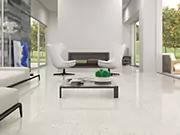
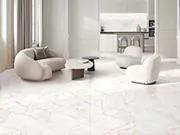
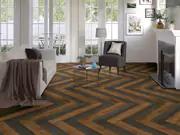
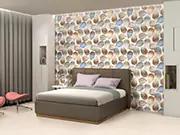
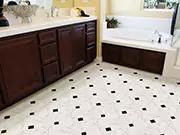

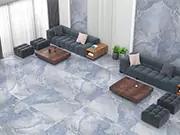
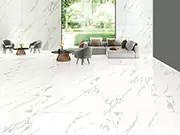
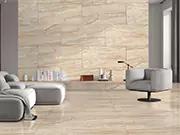
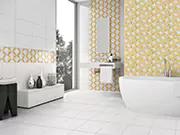
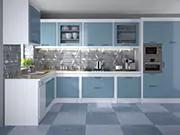
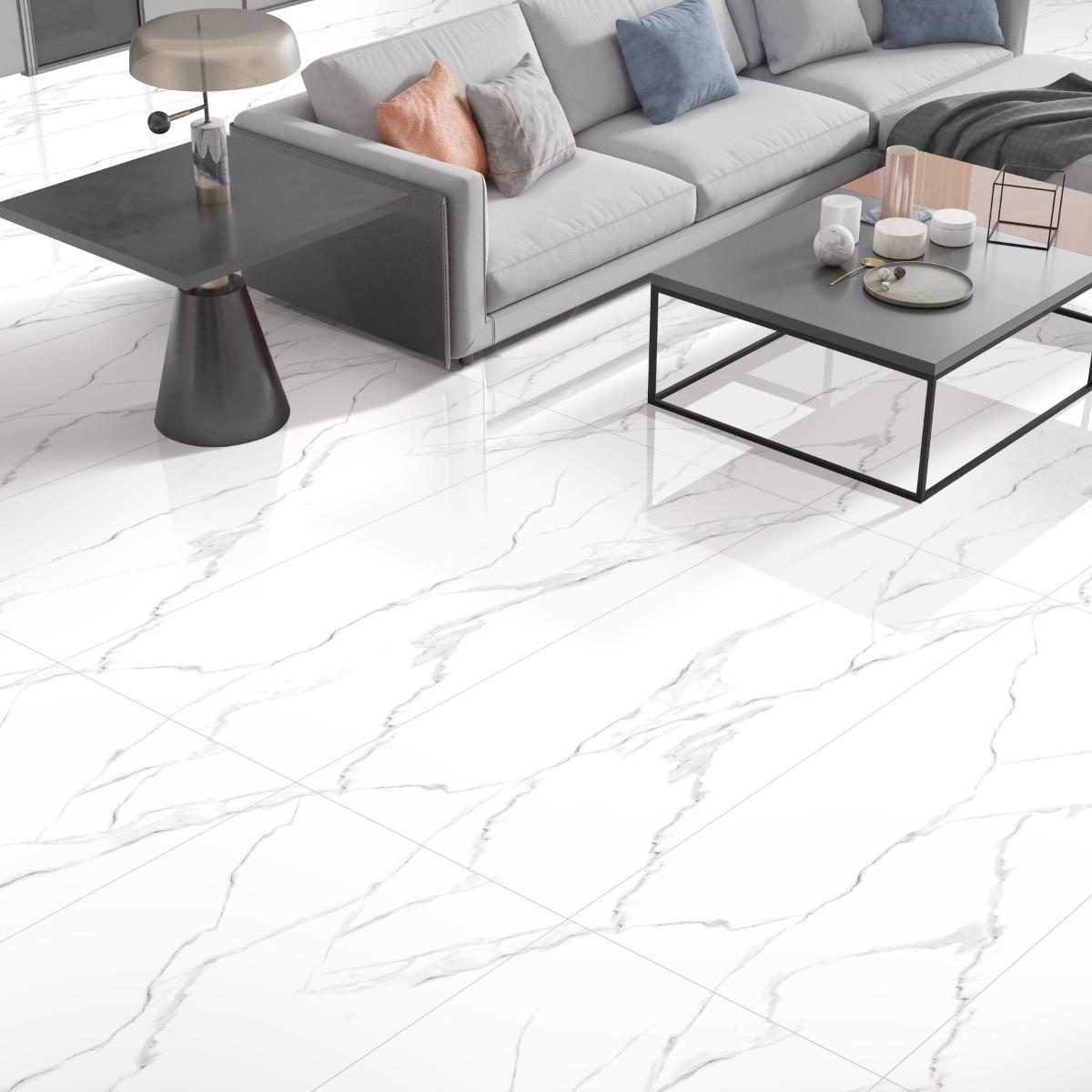
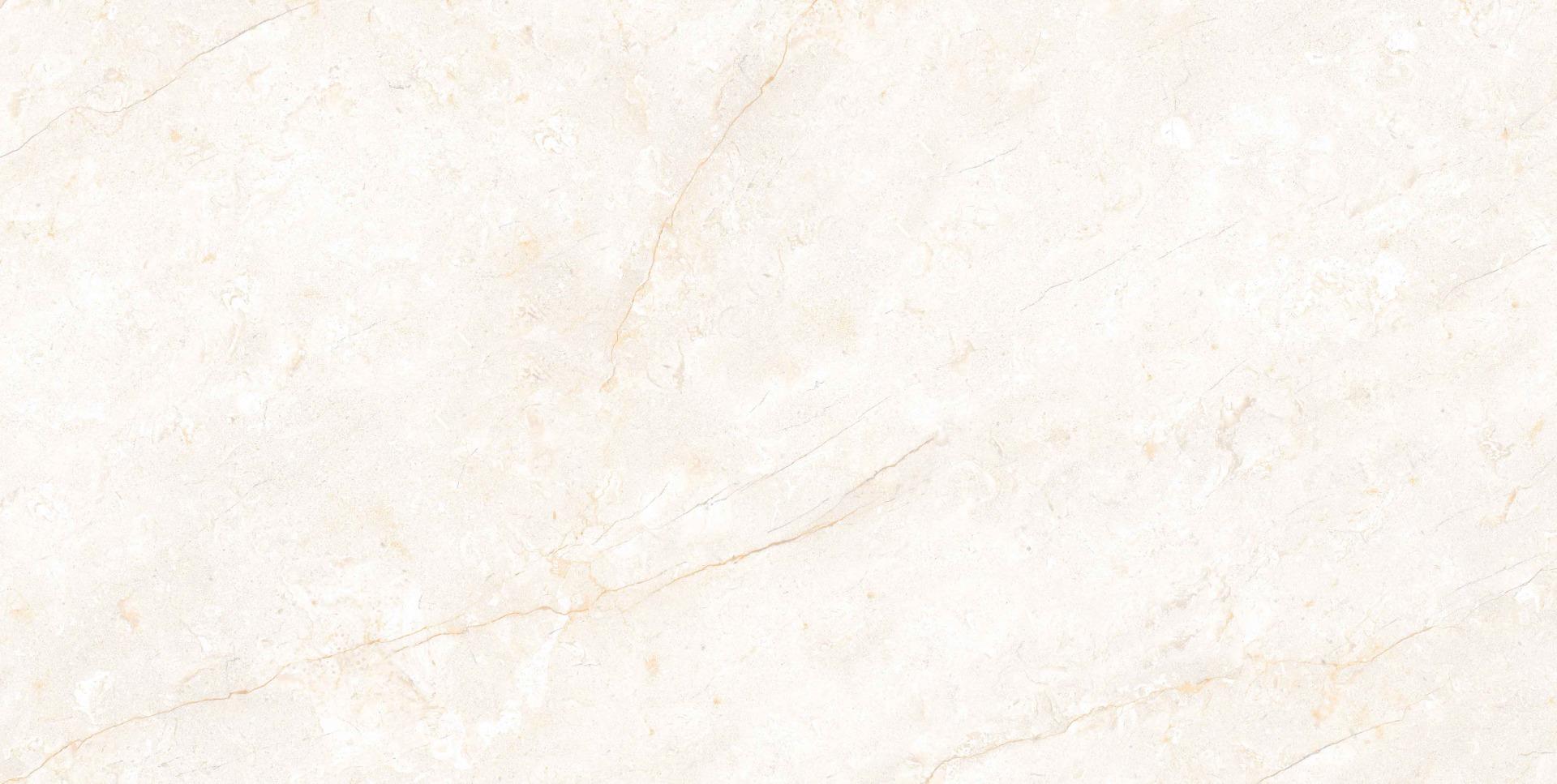
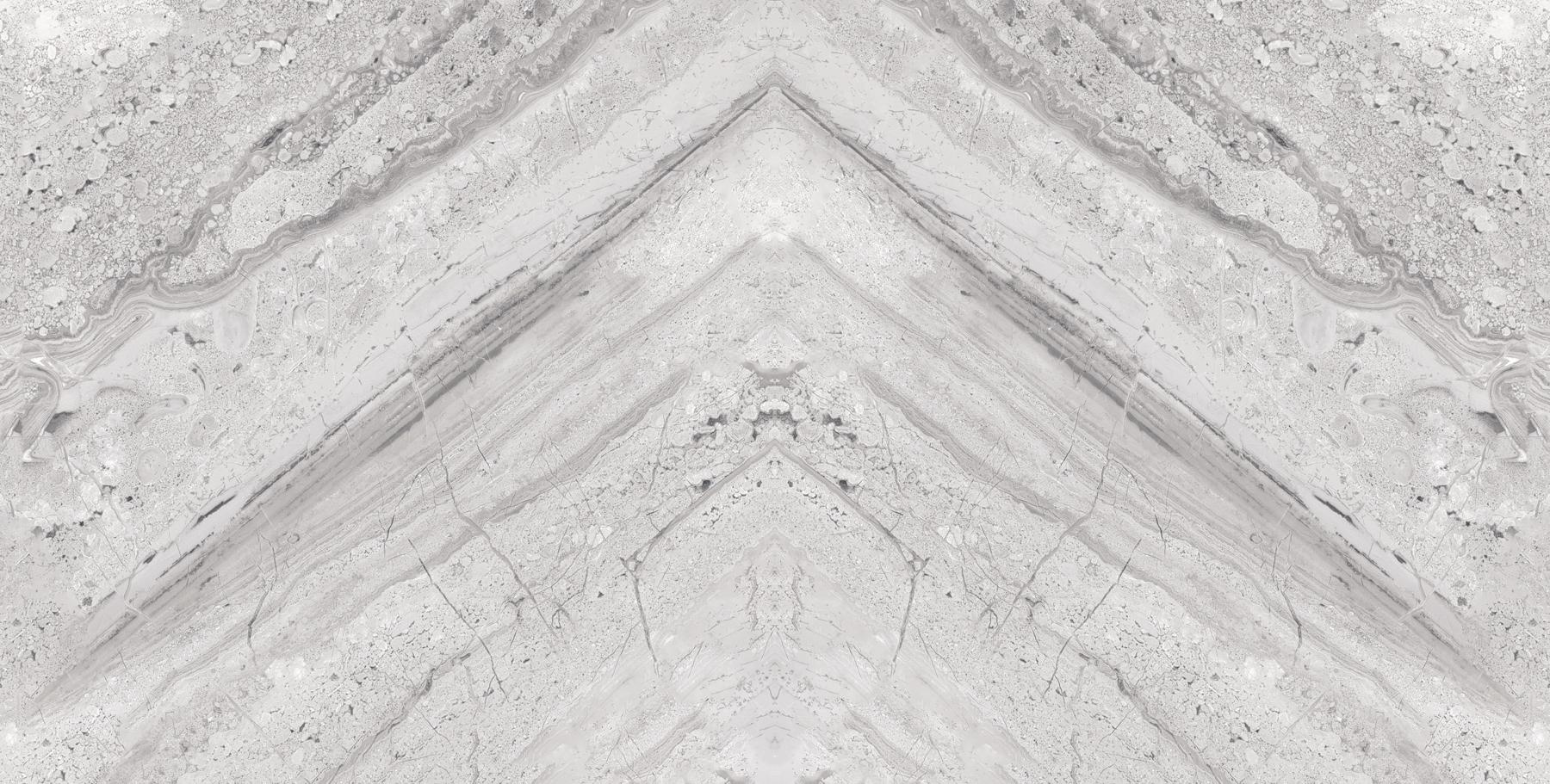
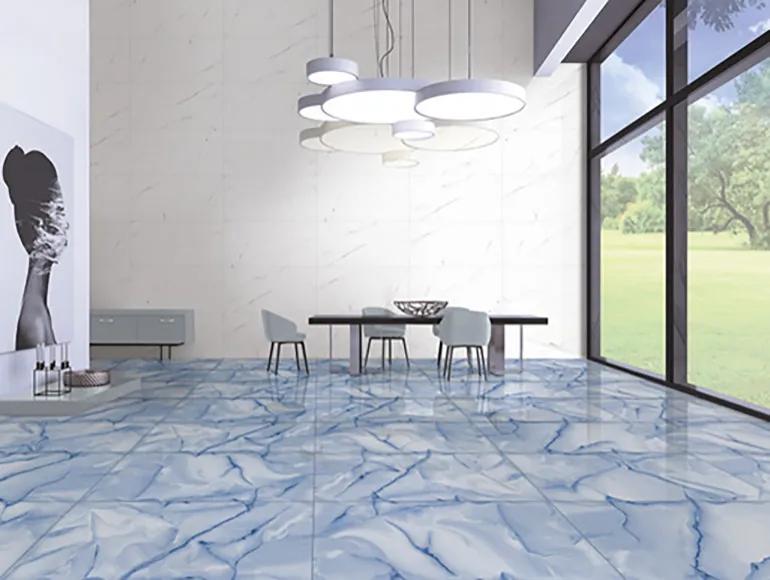
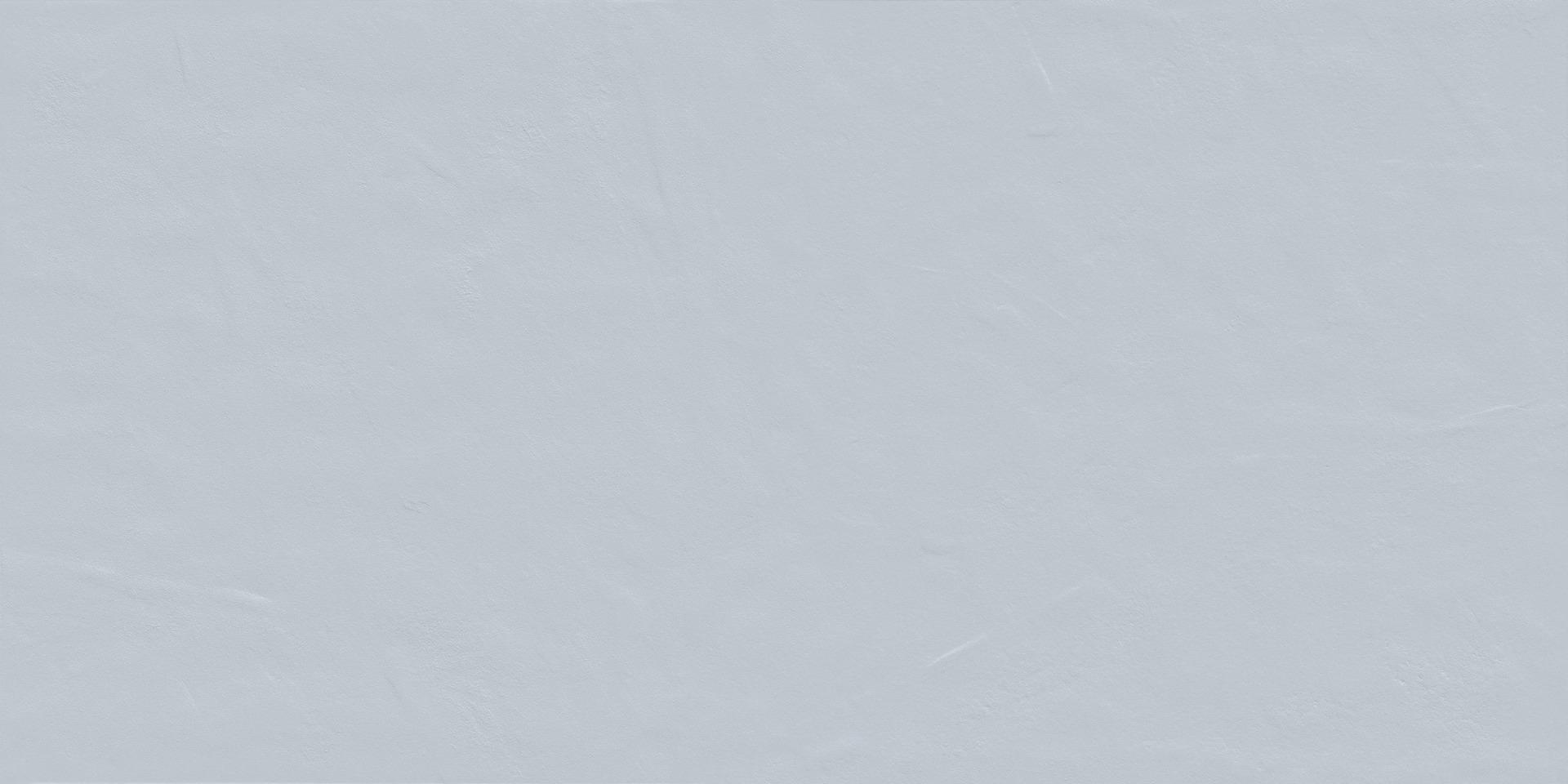
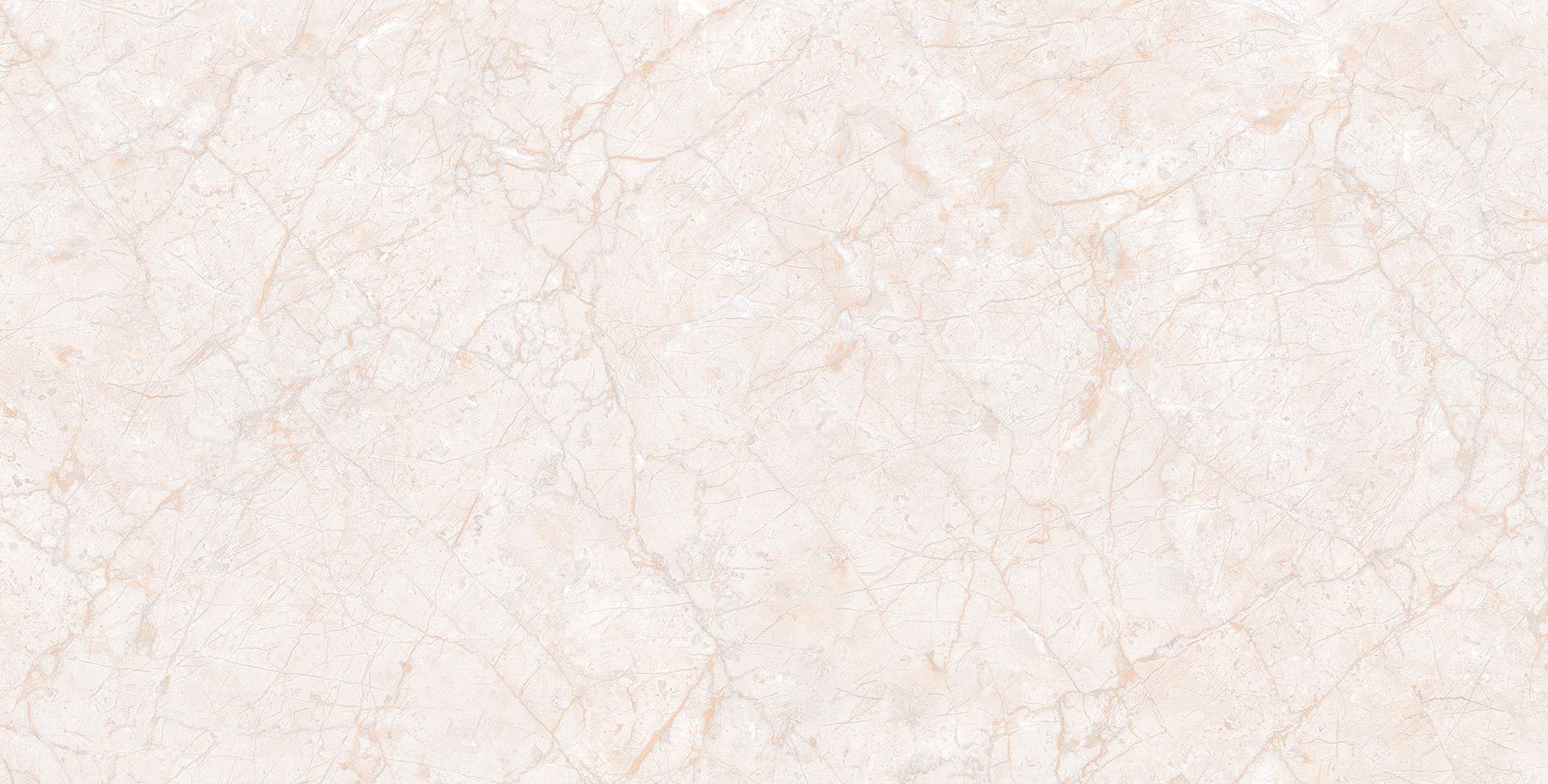
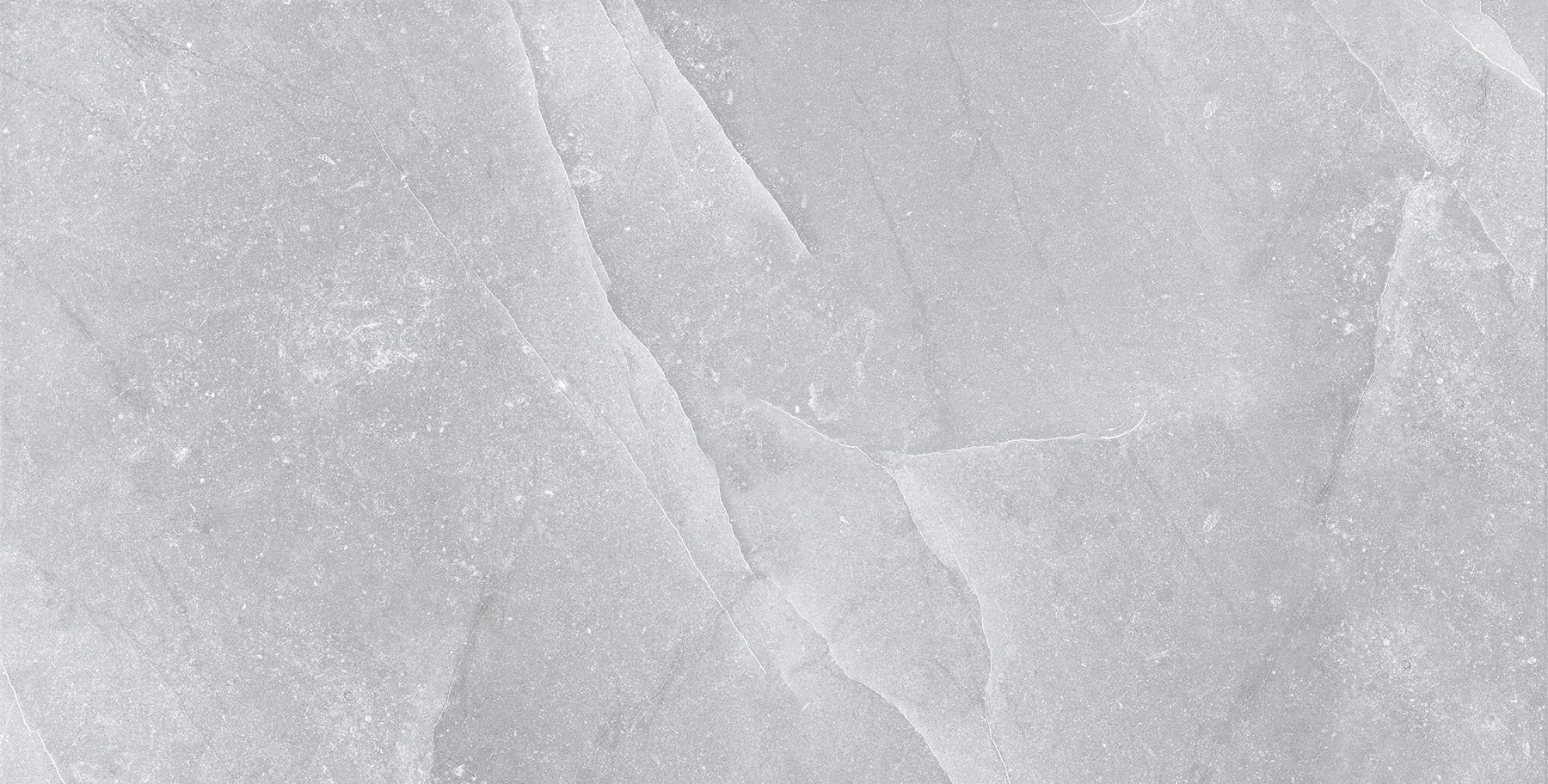
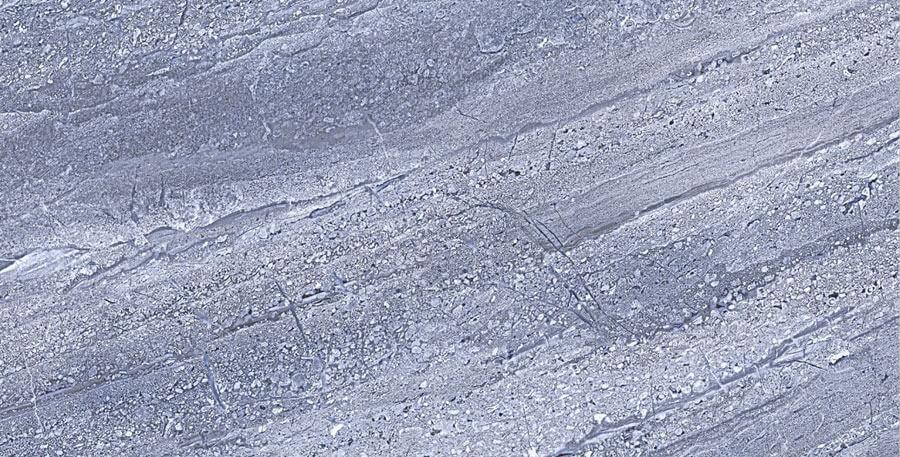
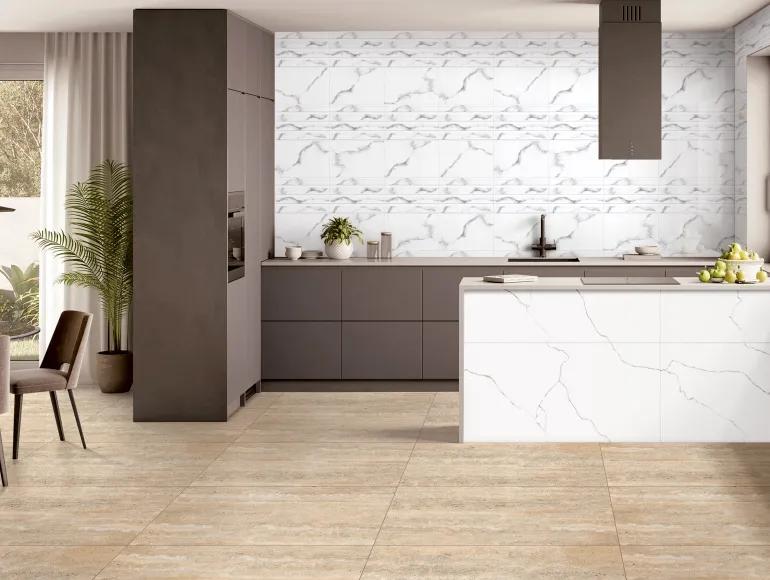
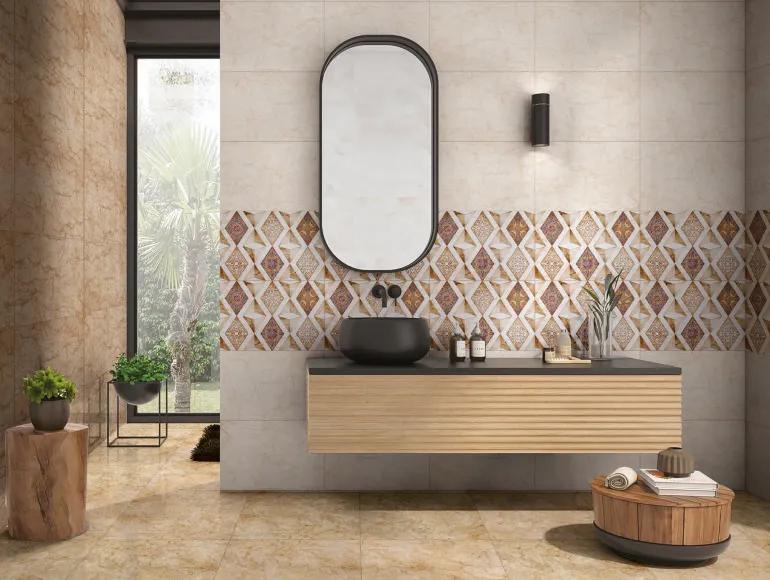
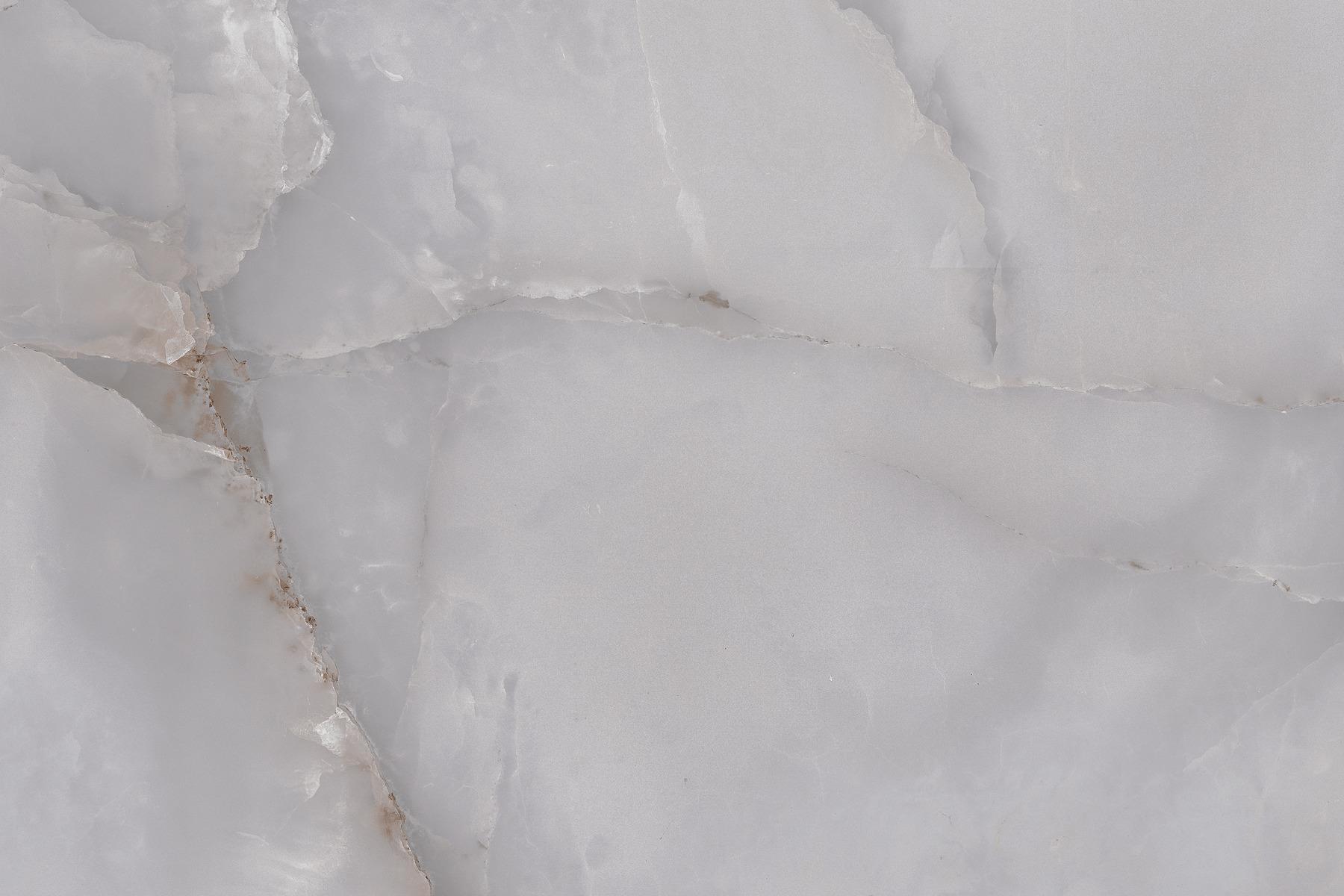
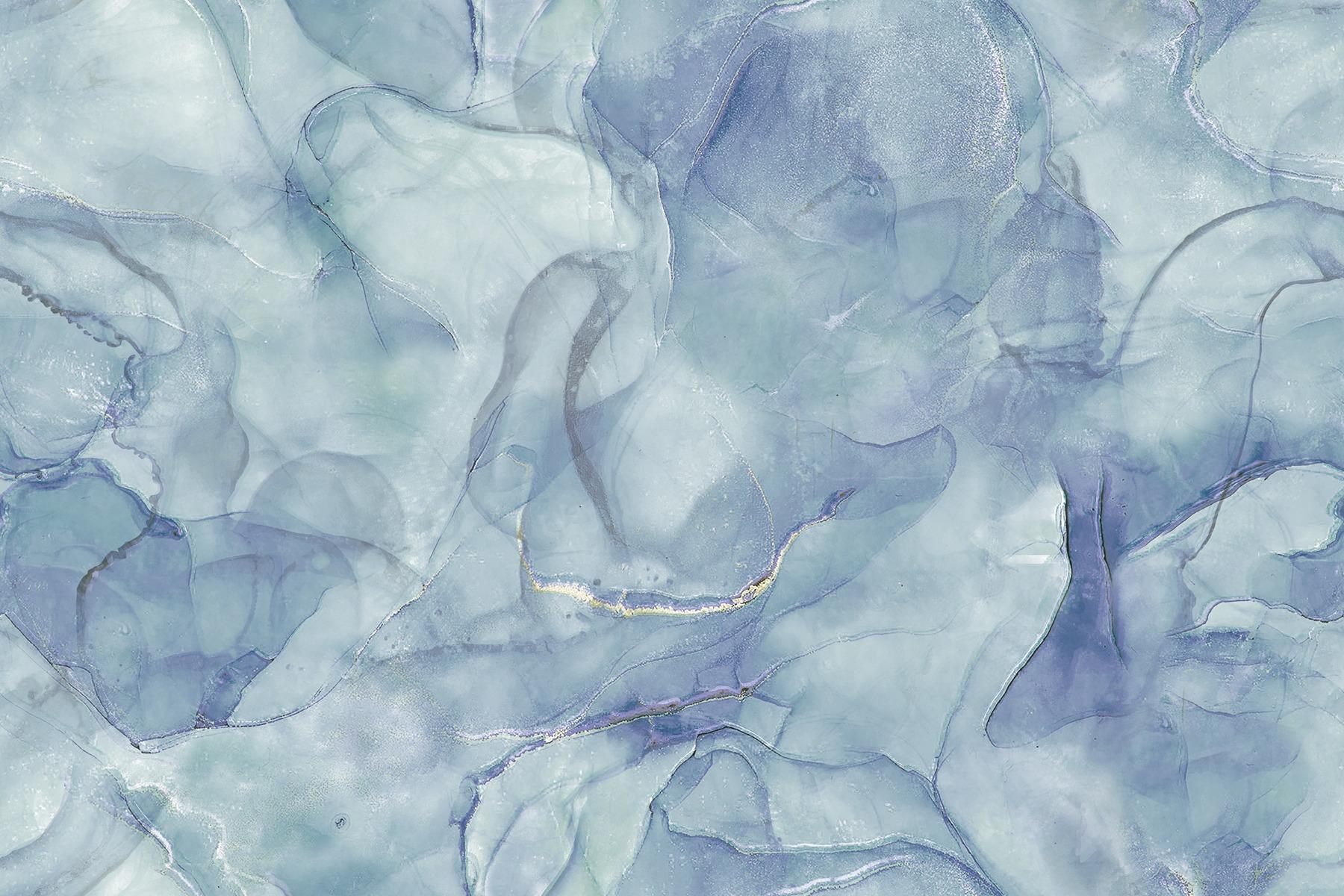
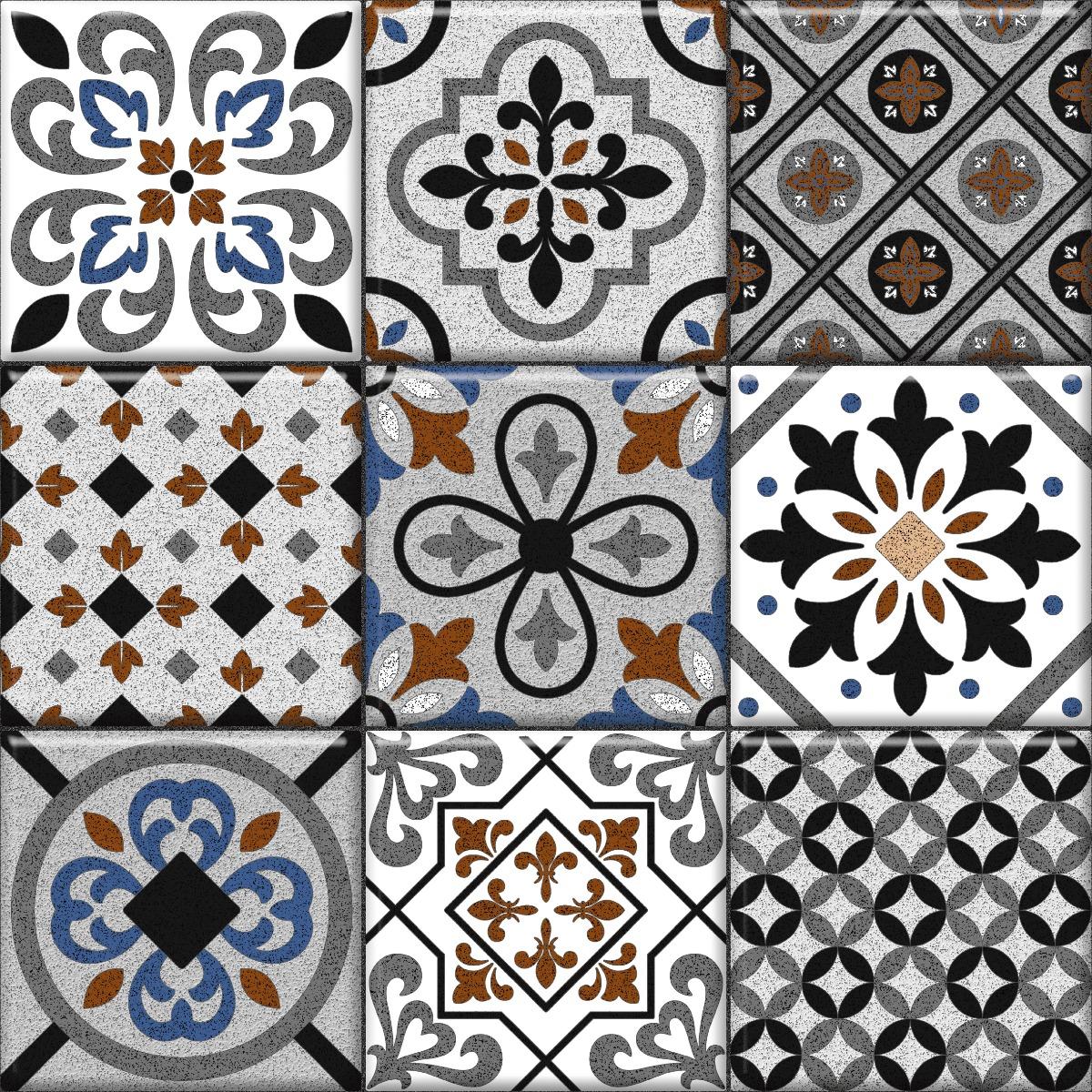
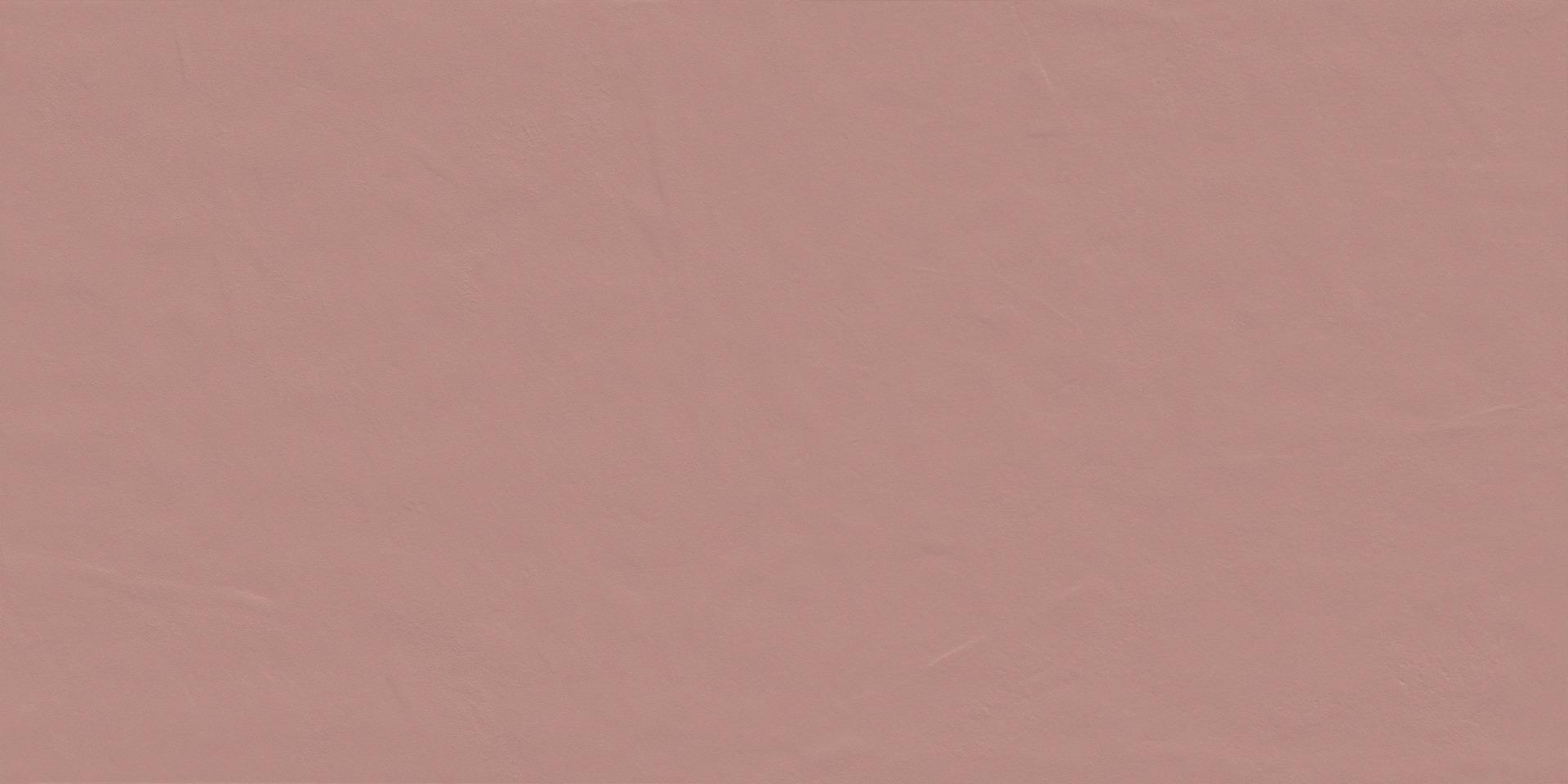

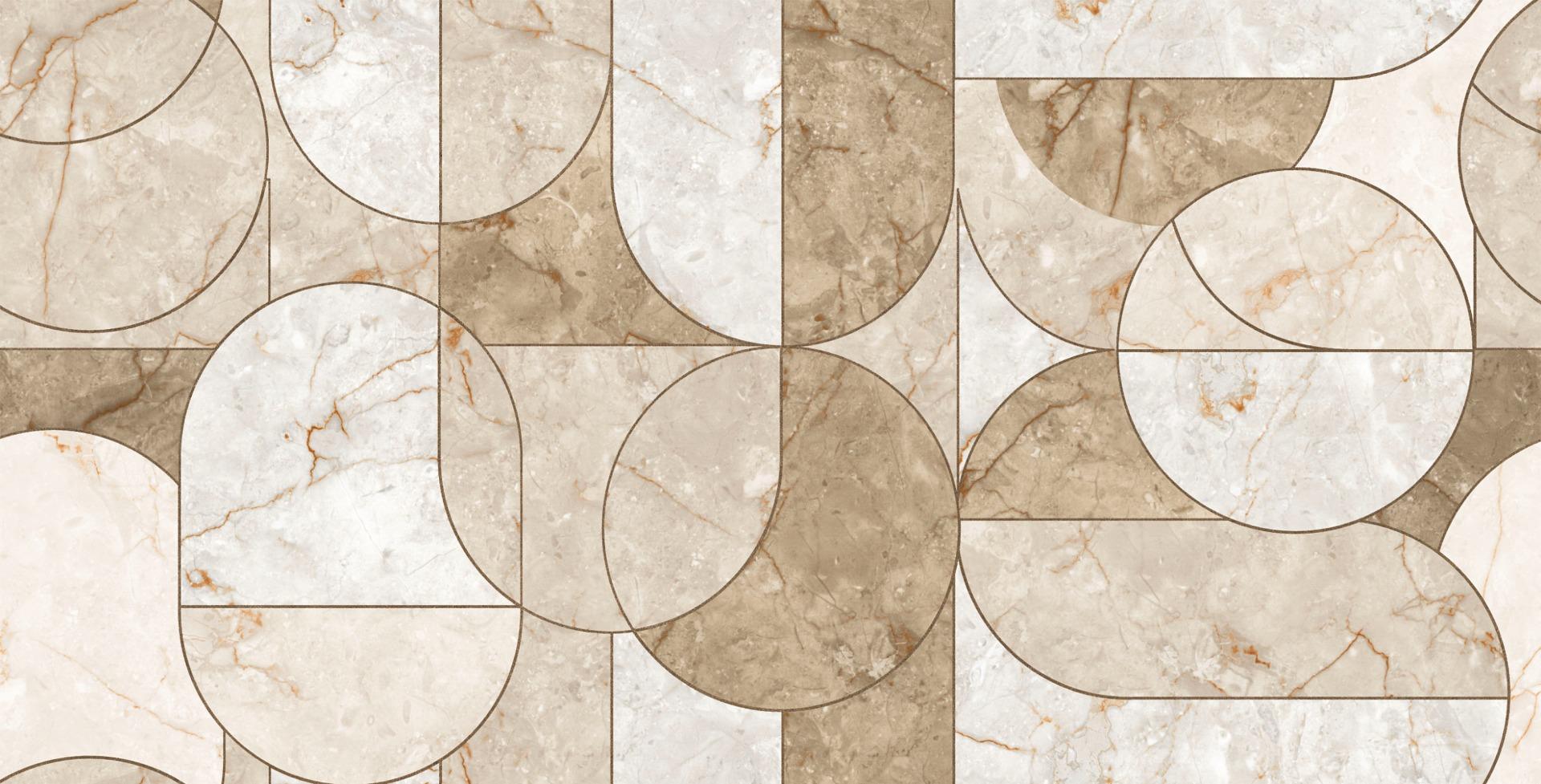
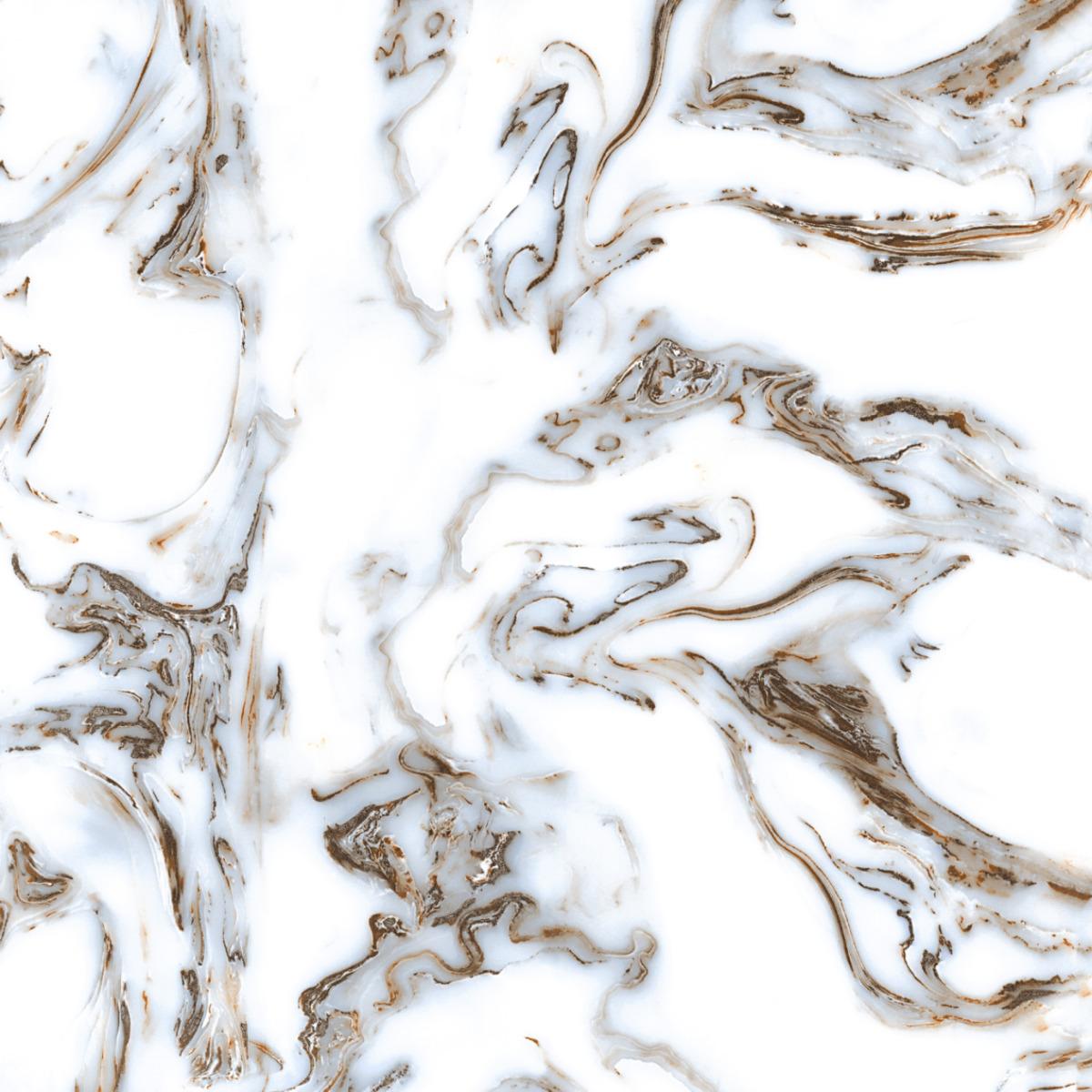
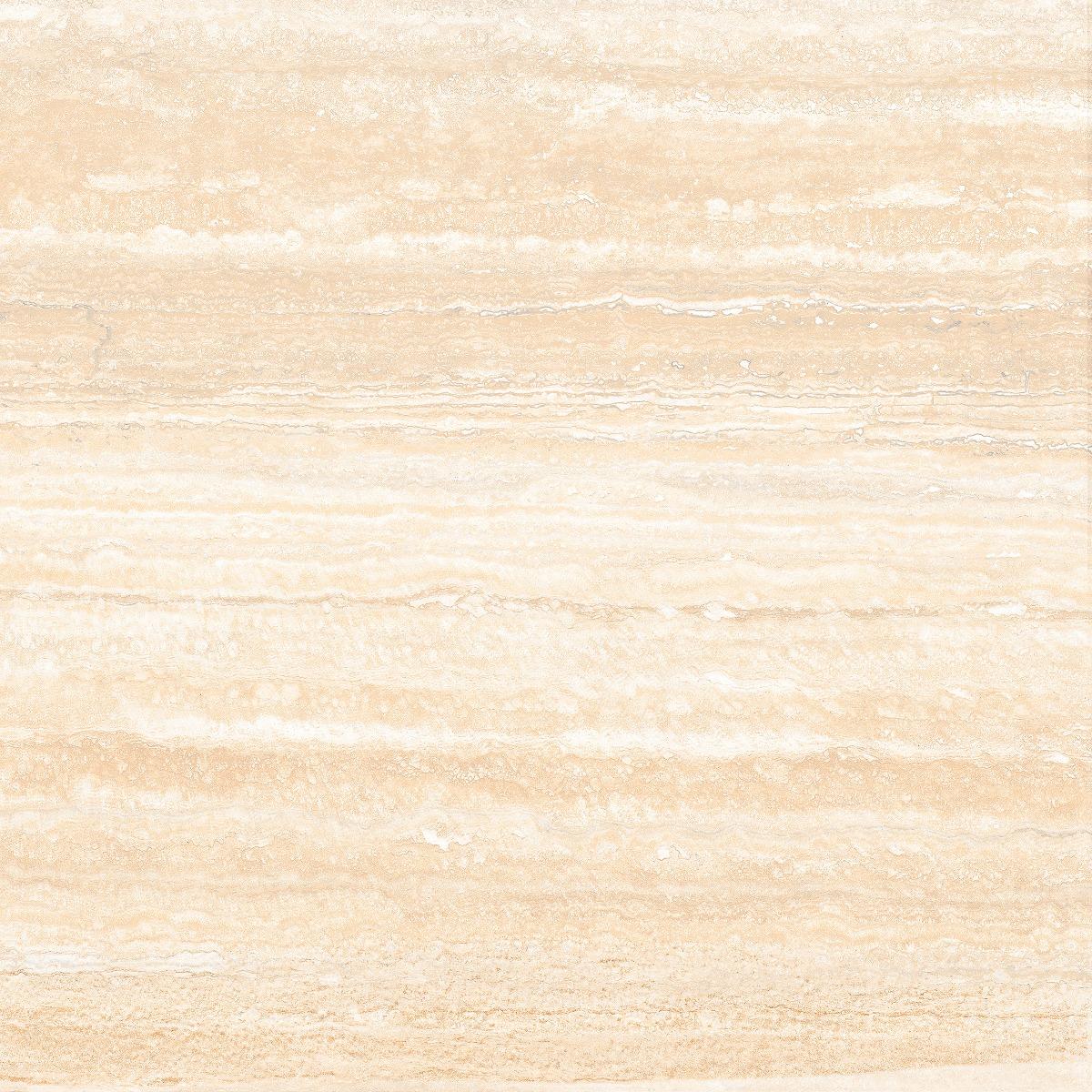
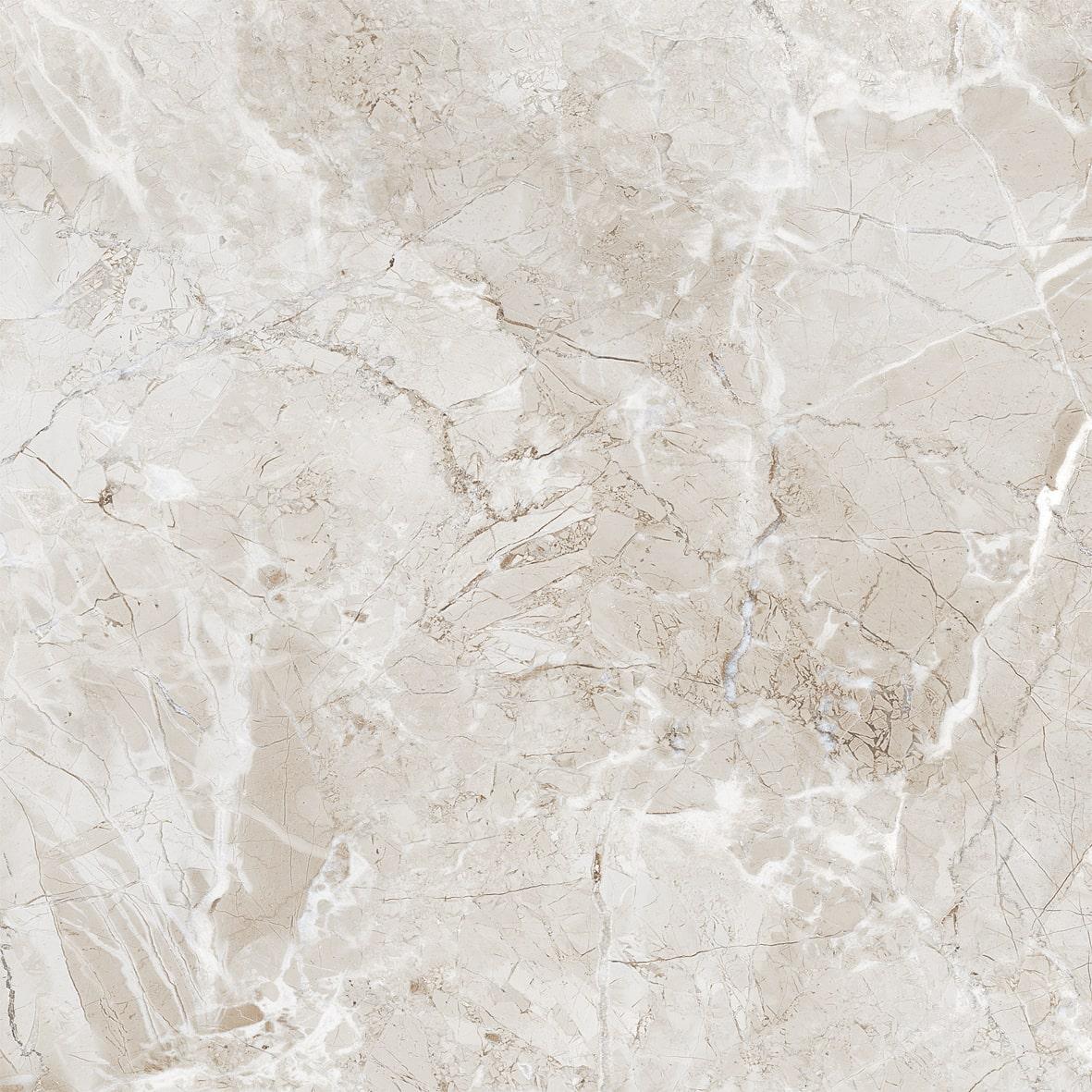
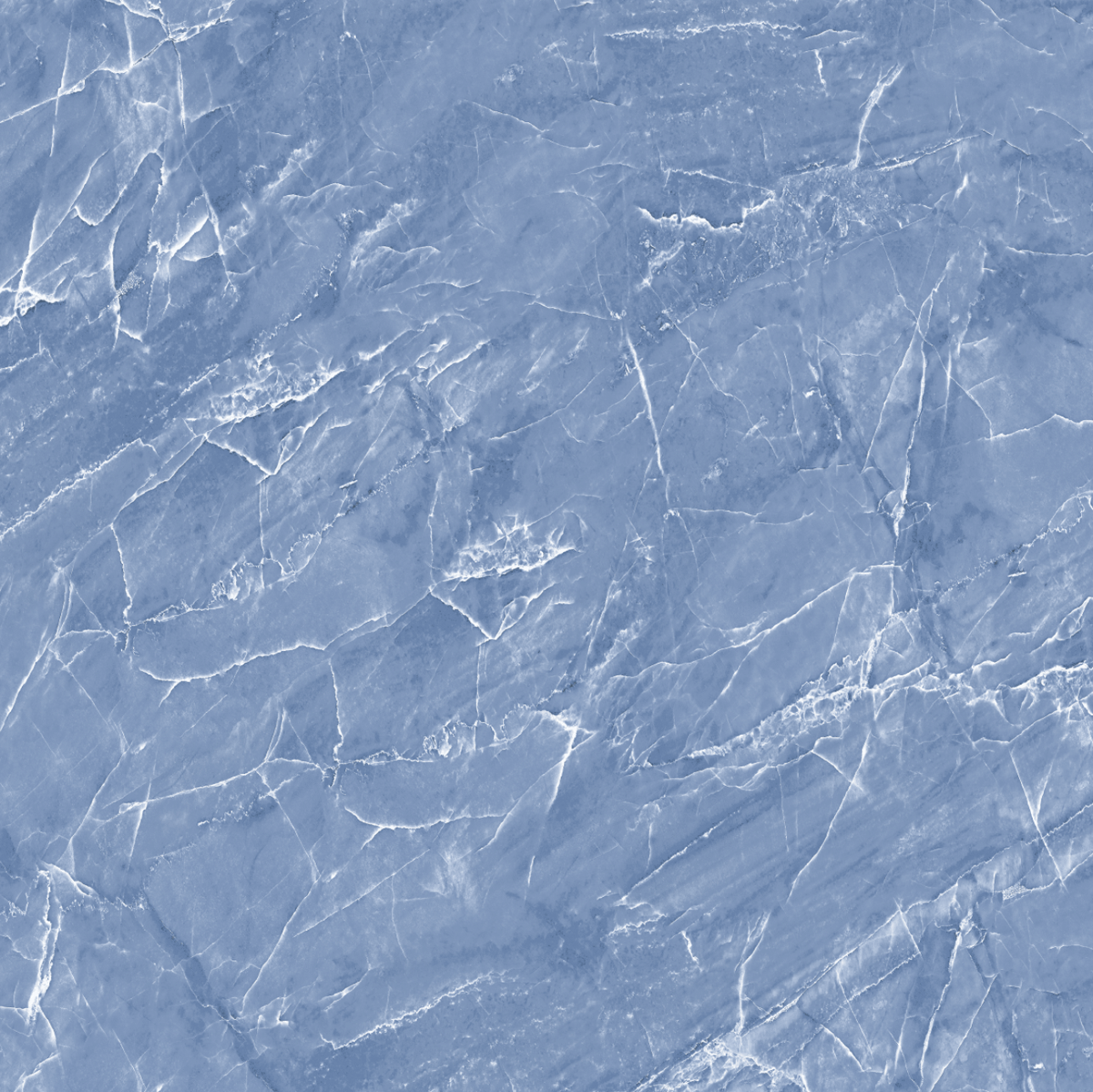

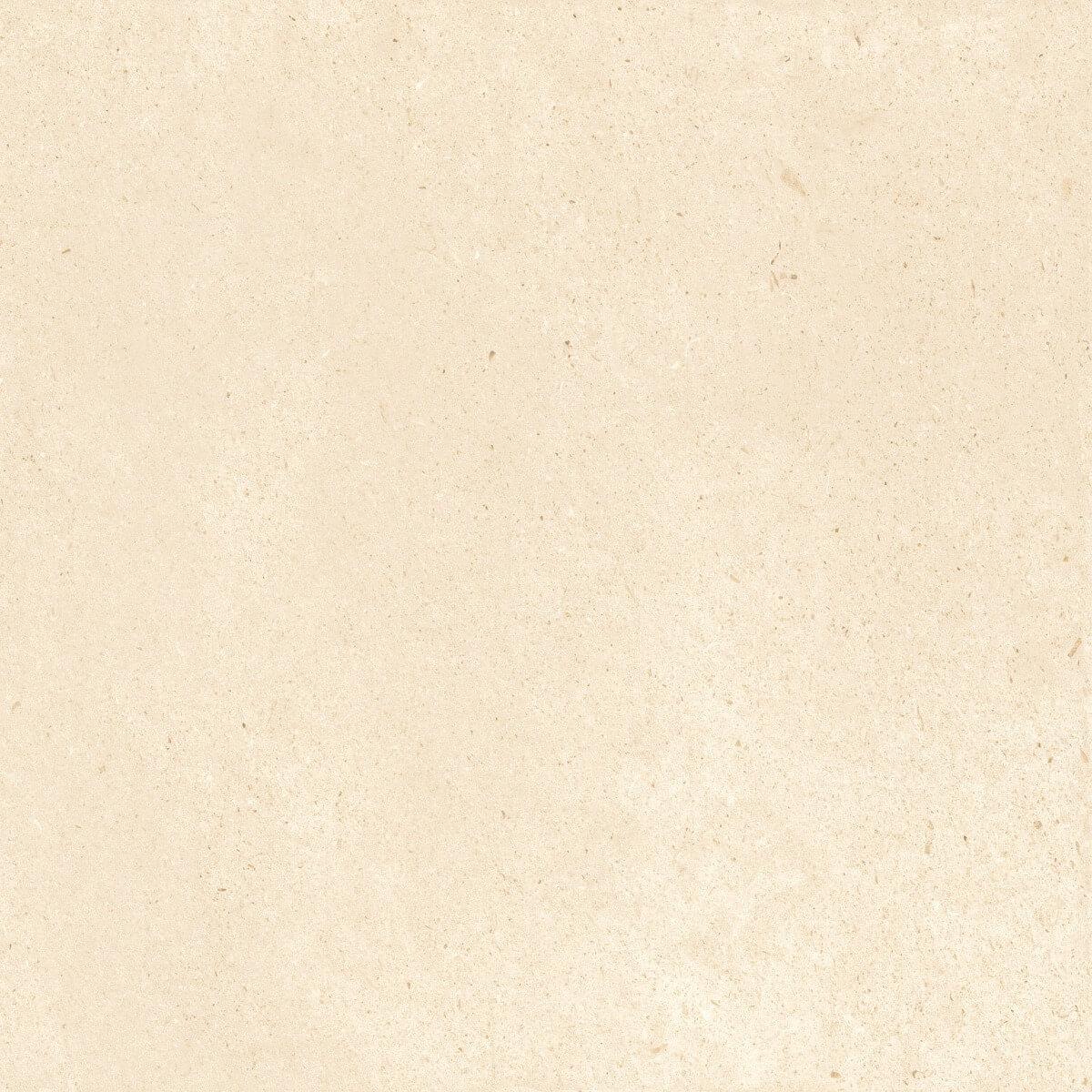
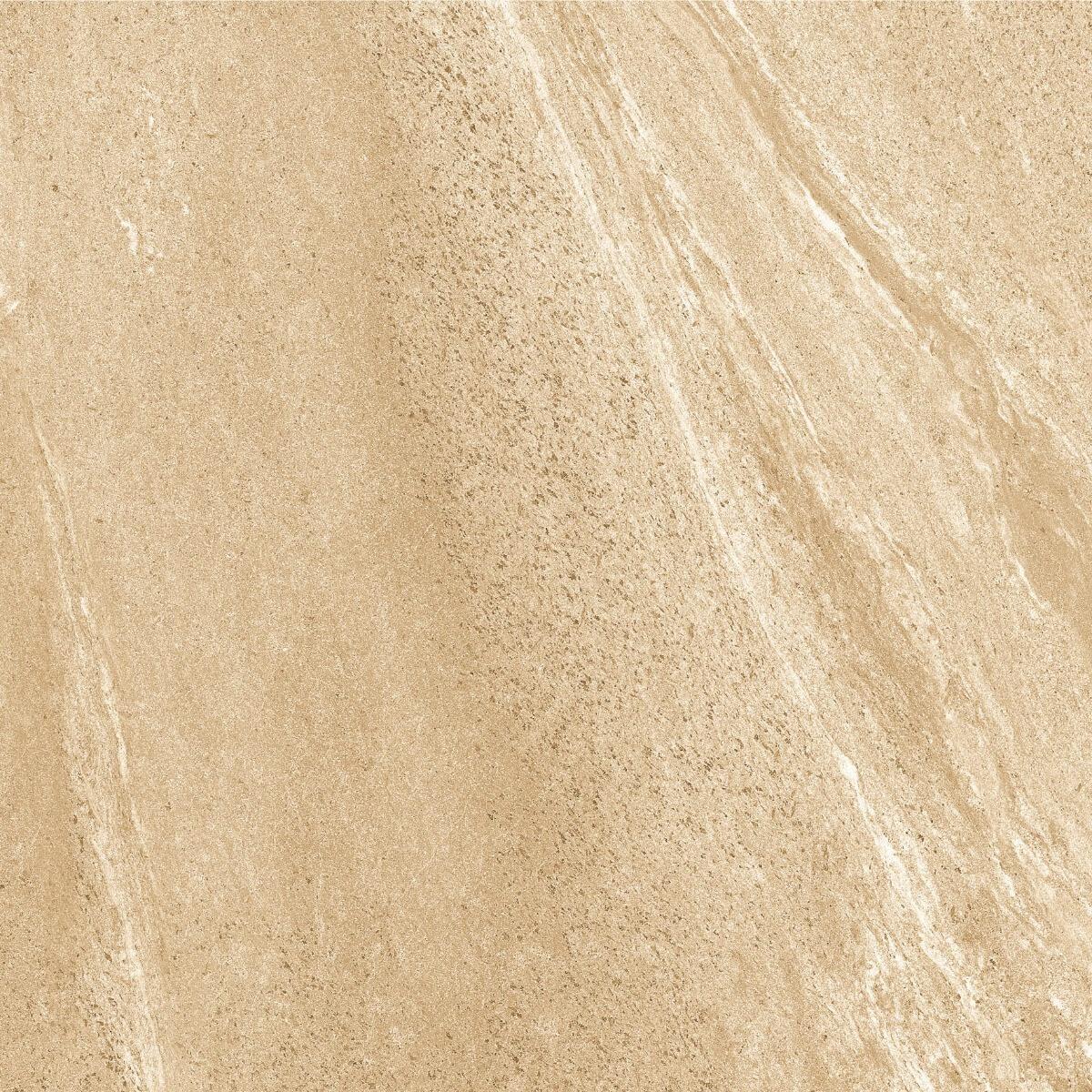
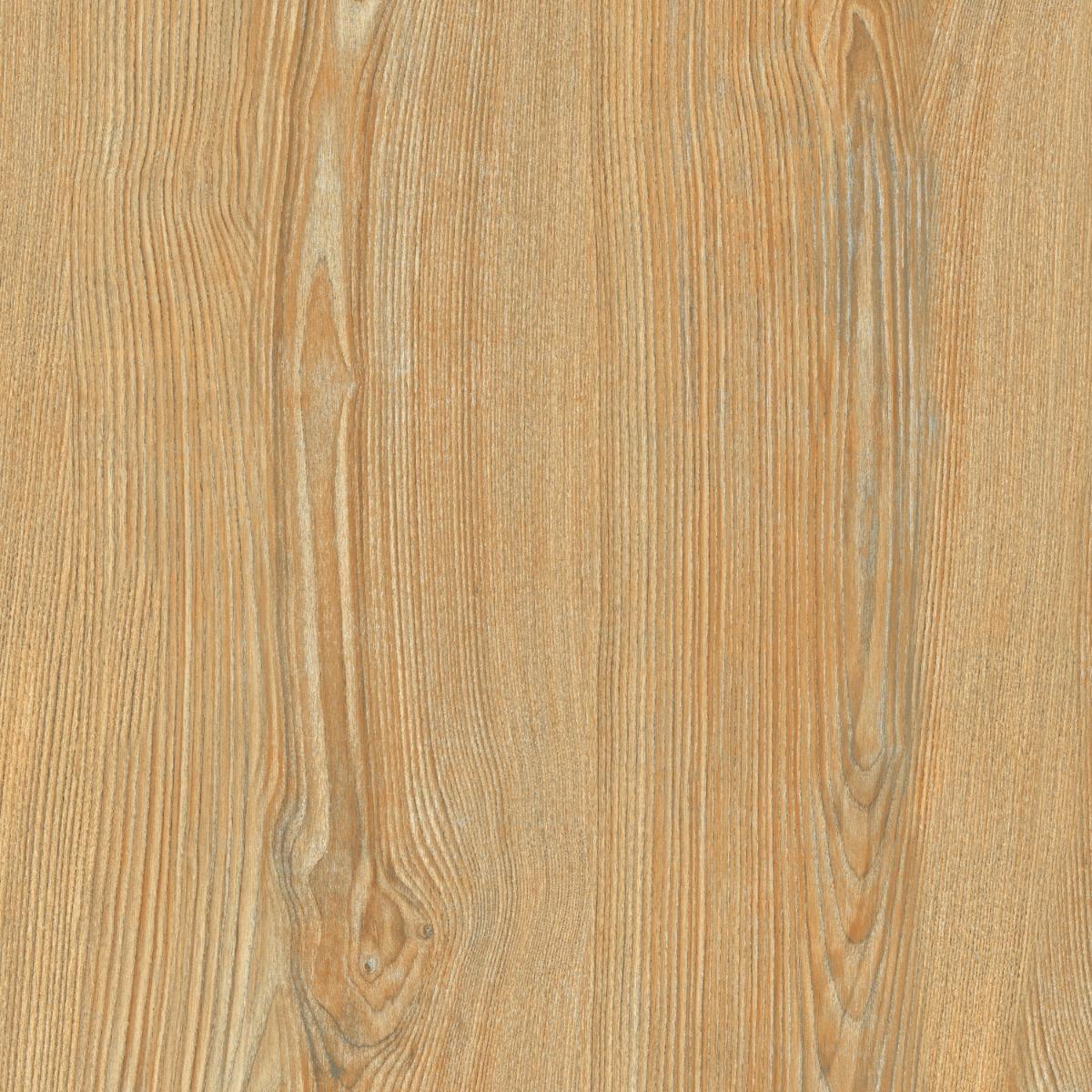
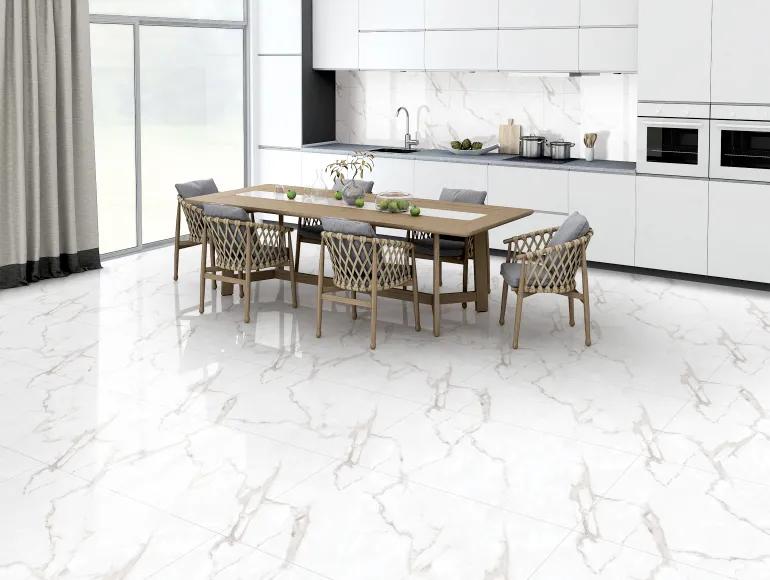
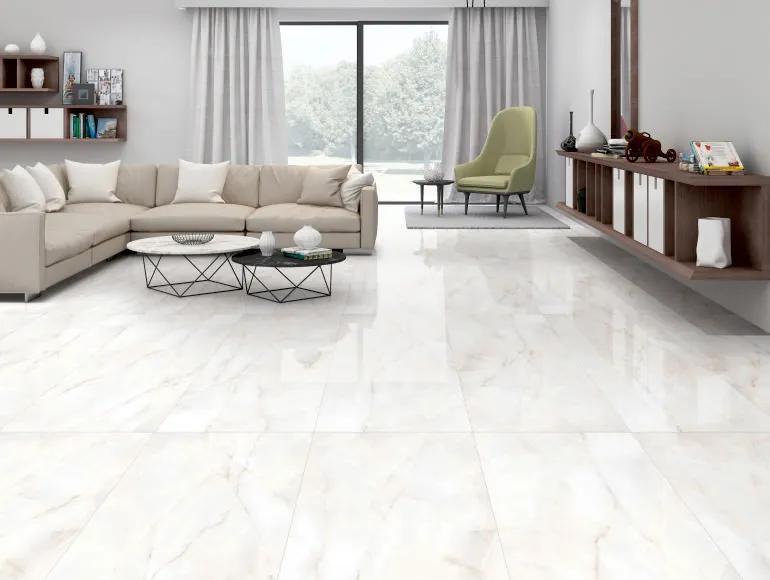
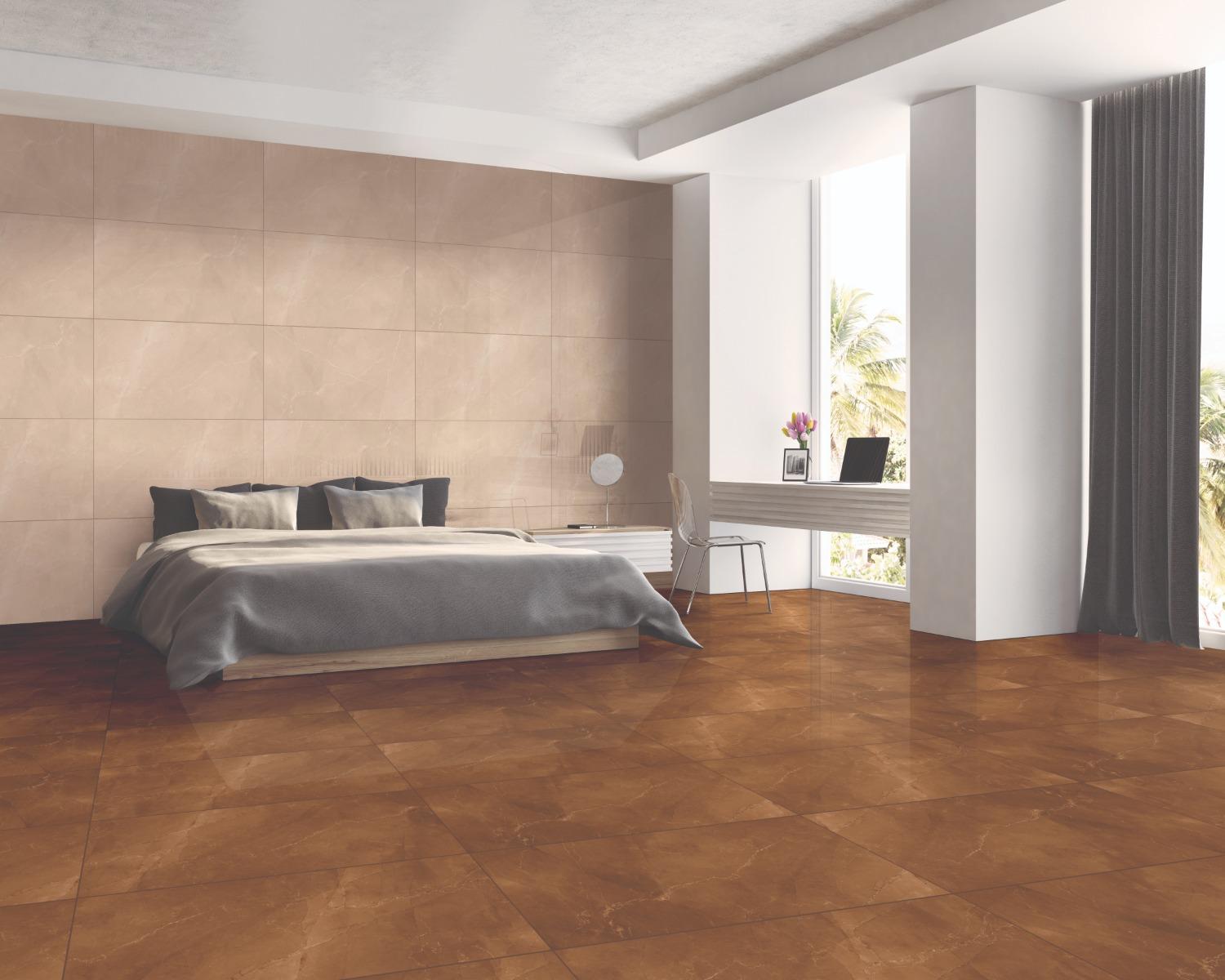
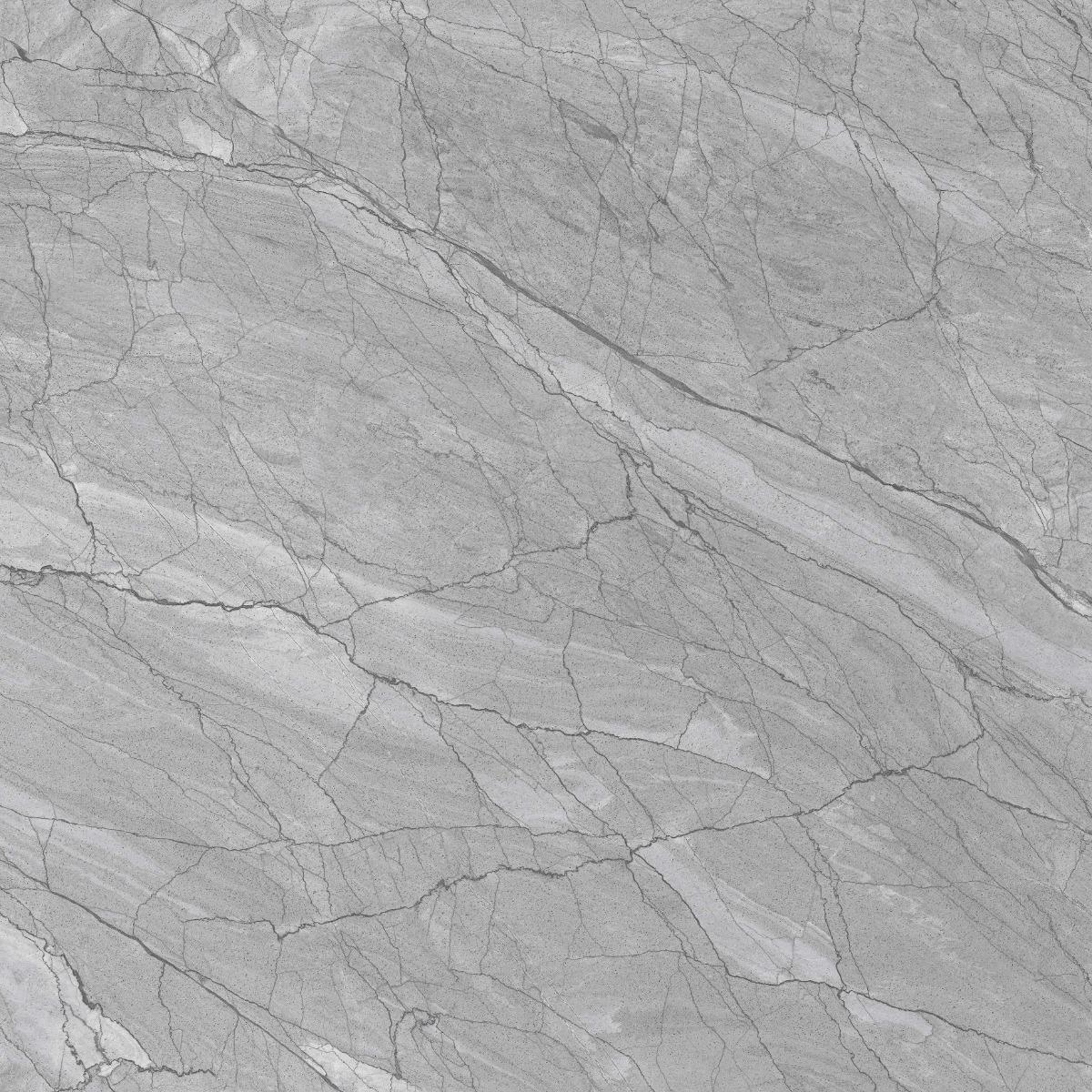

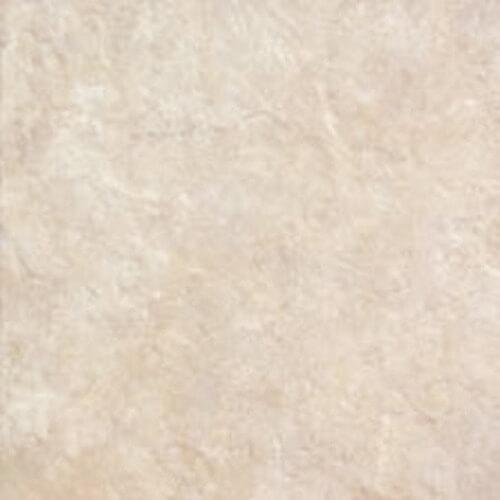
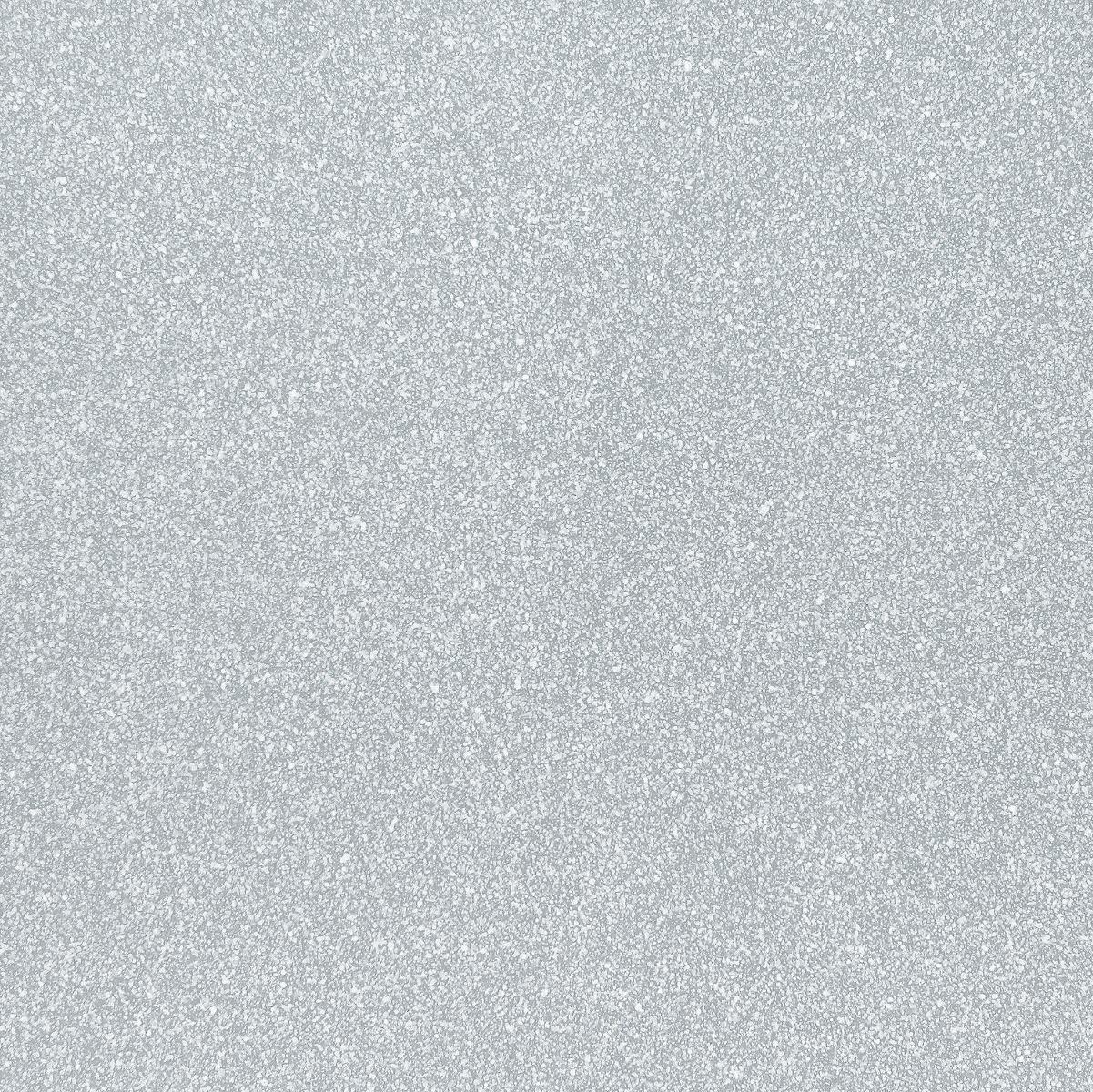

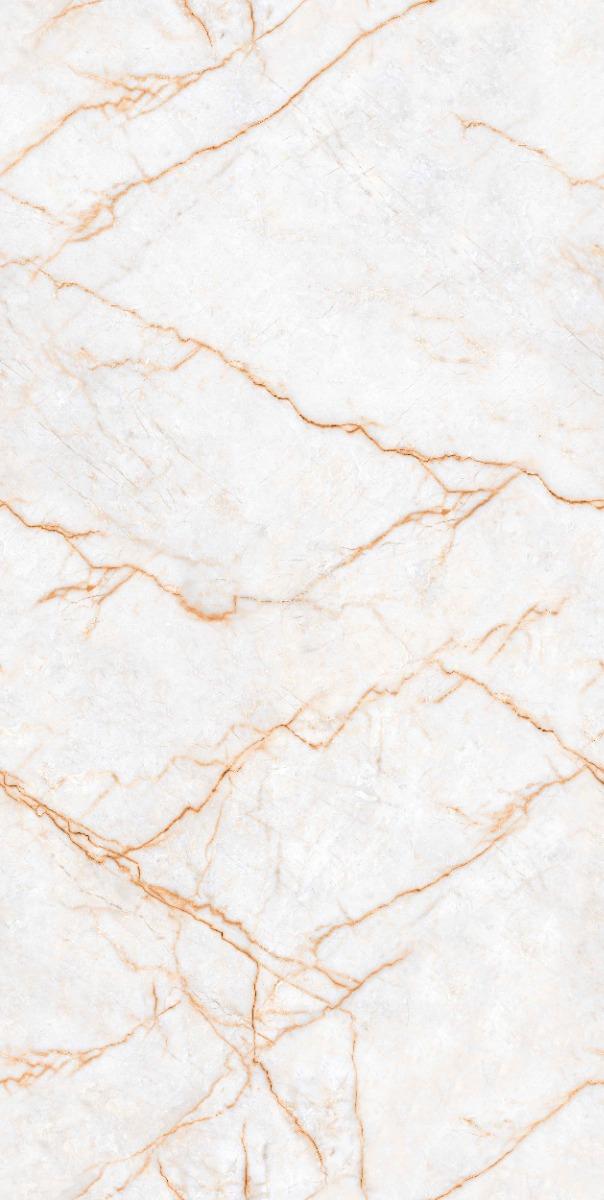
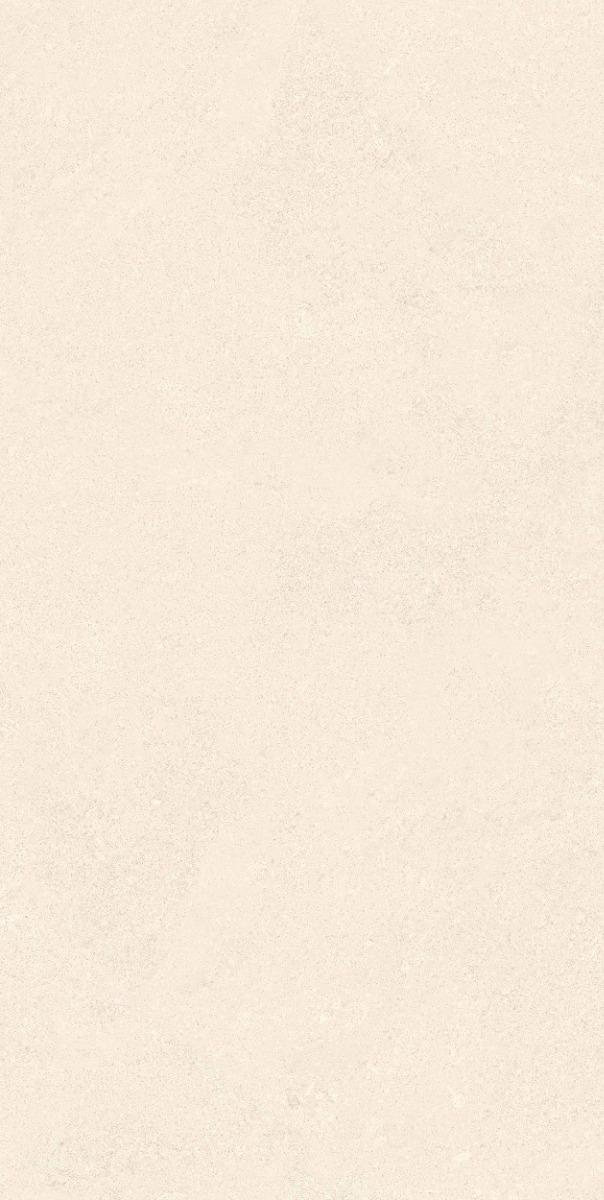
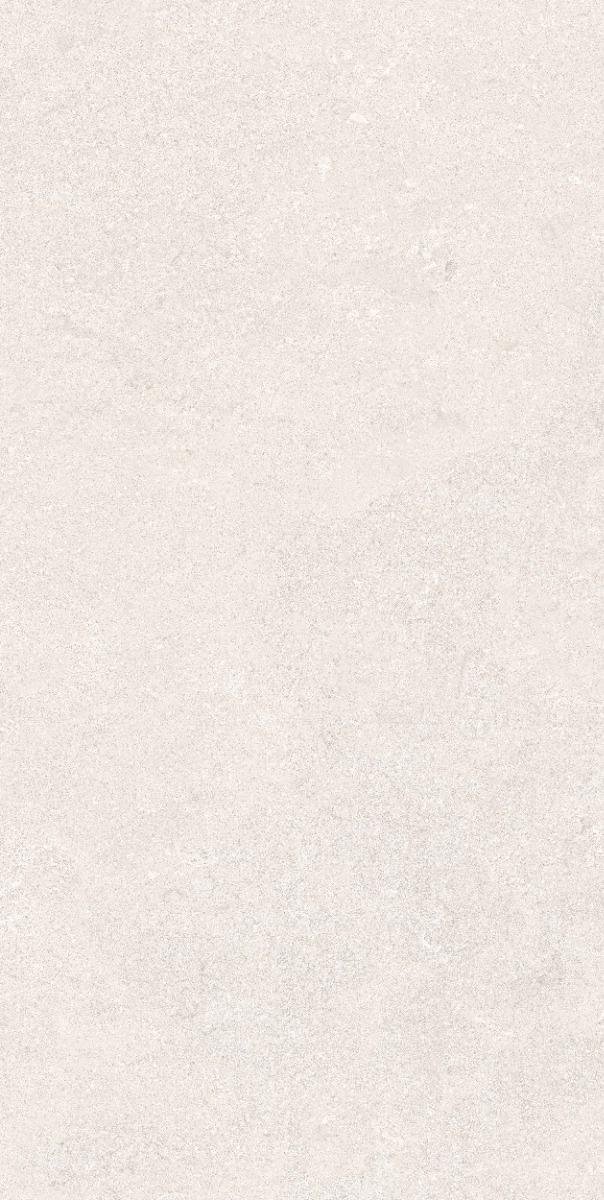
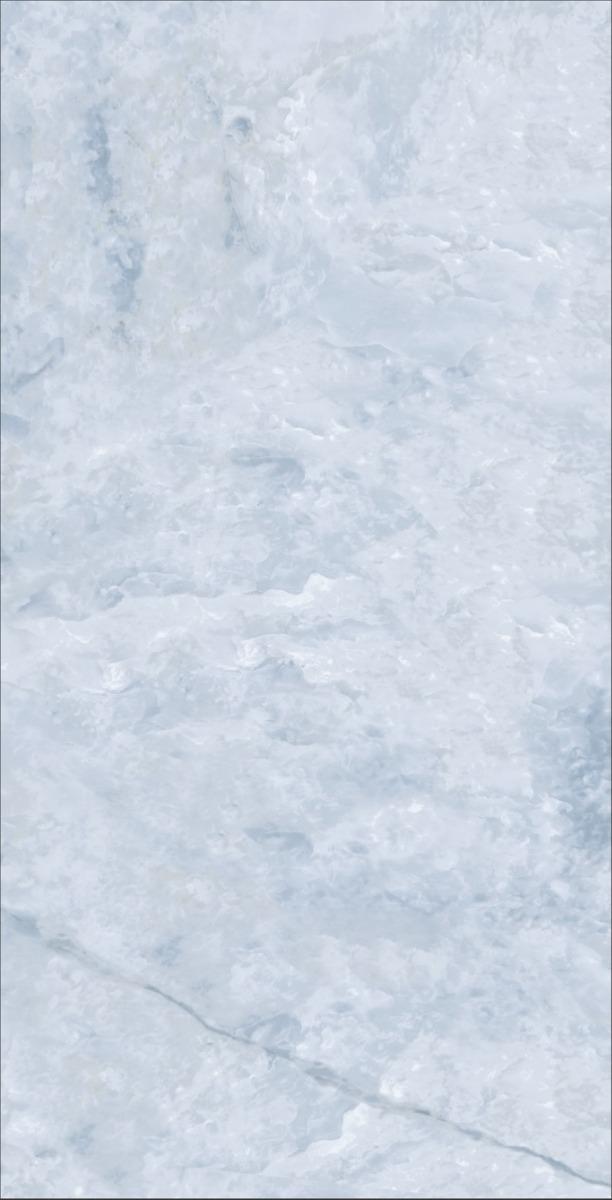
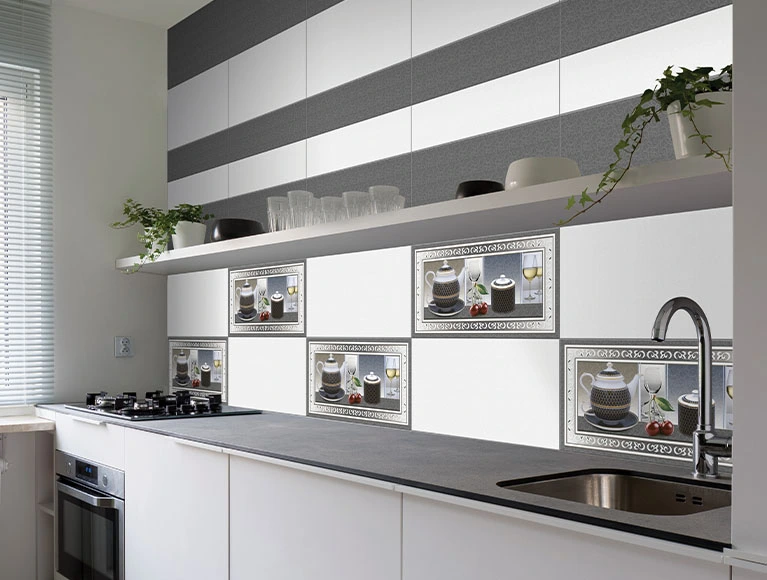
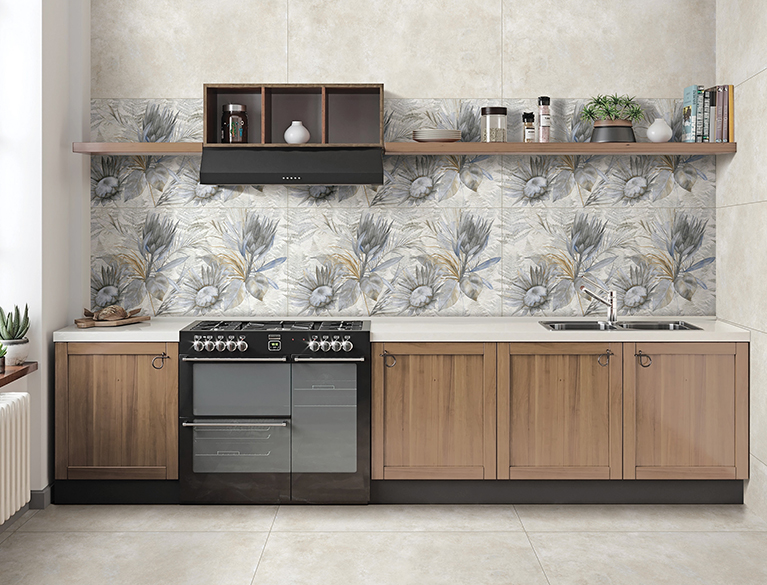
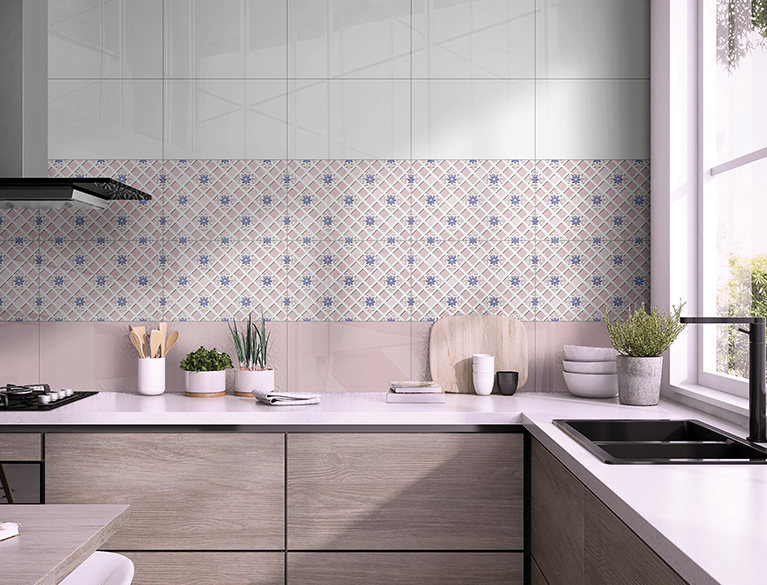
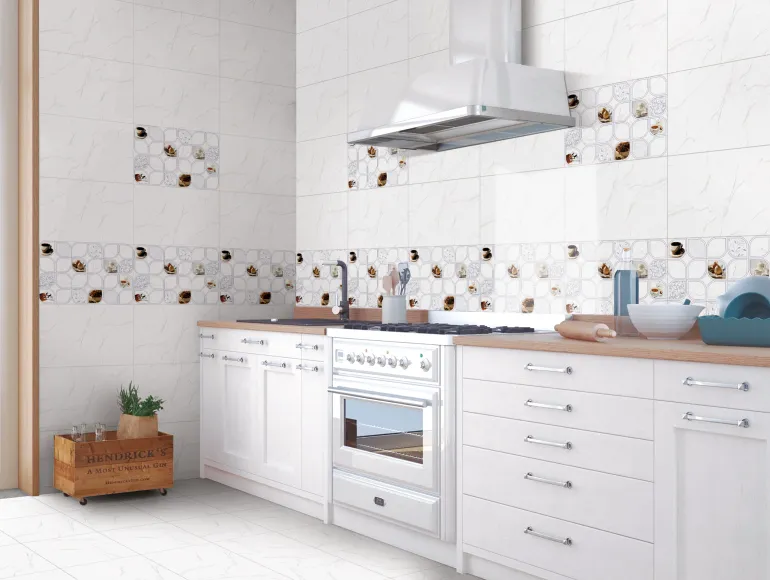

 DOWNLOAD CATALOGUE
DOWNLOAD CATALOGUE